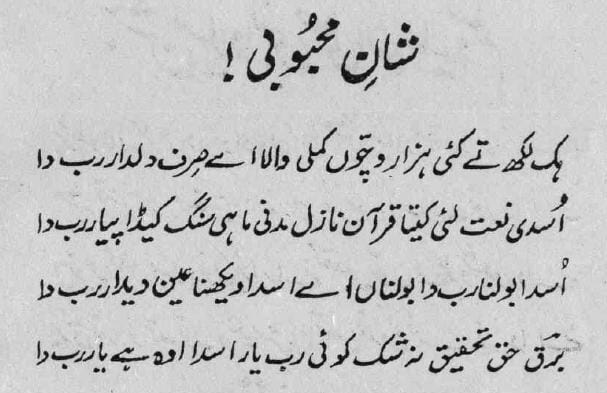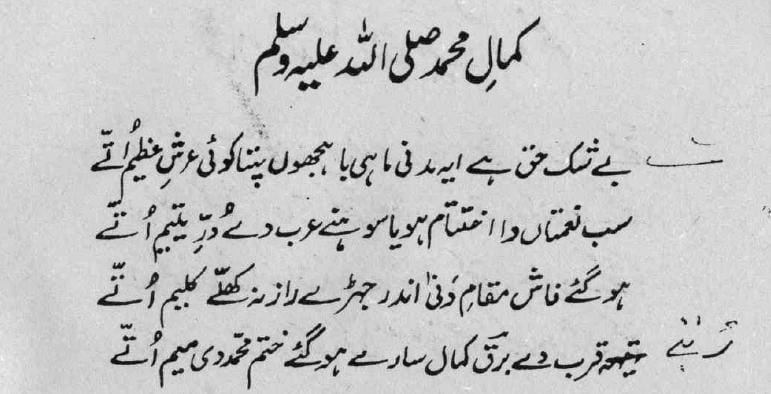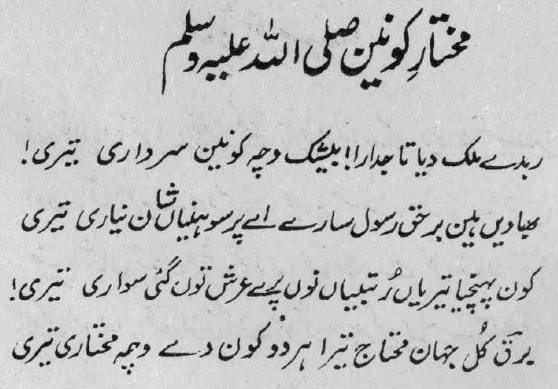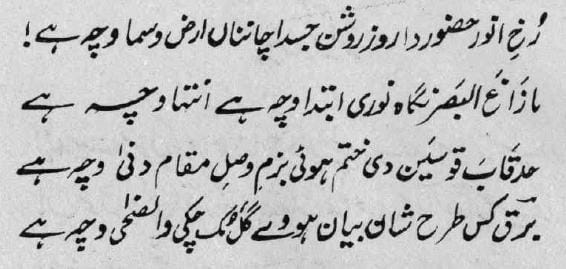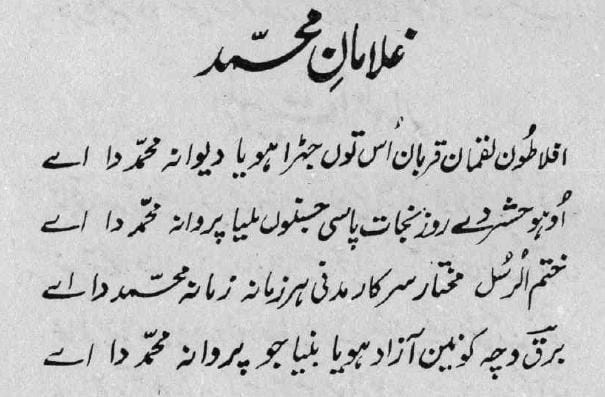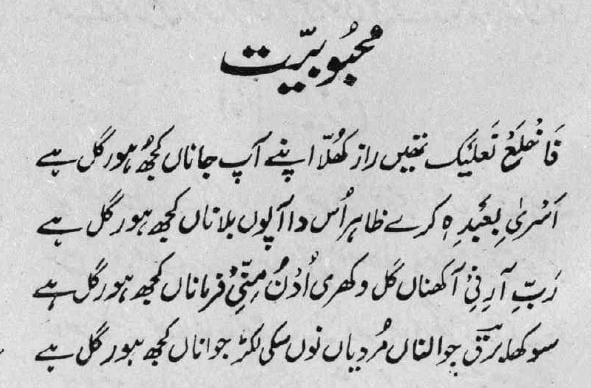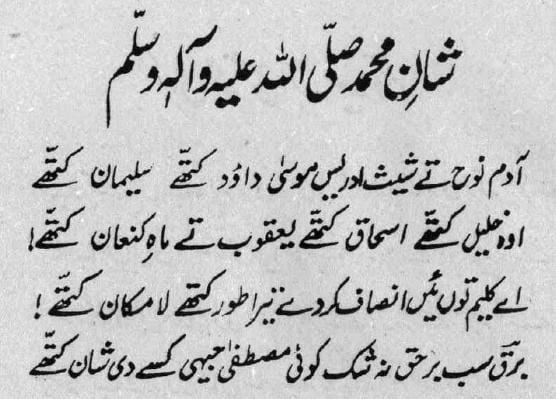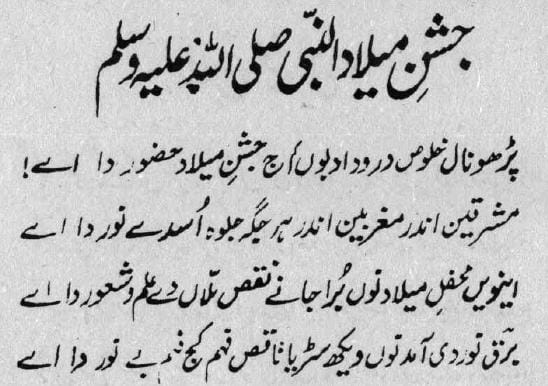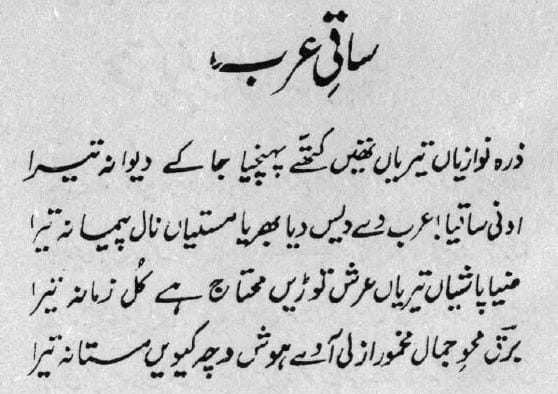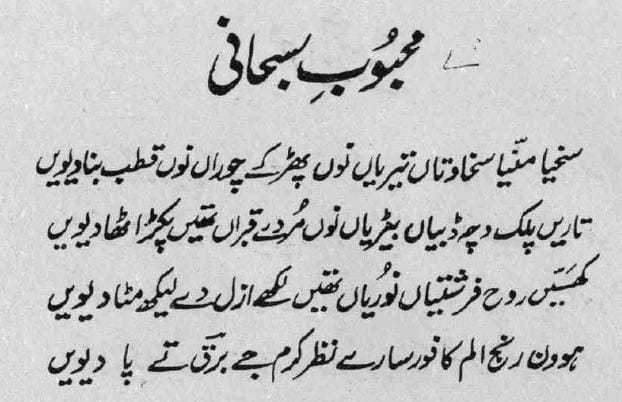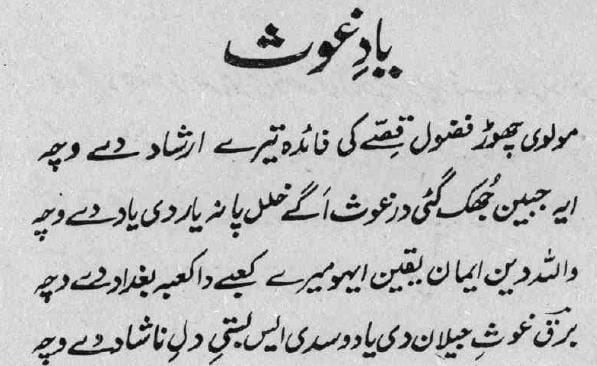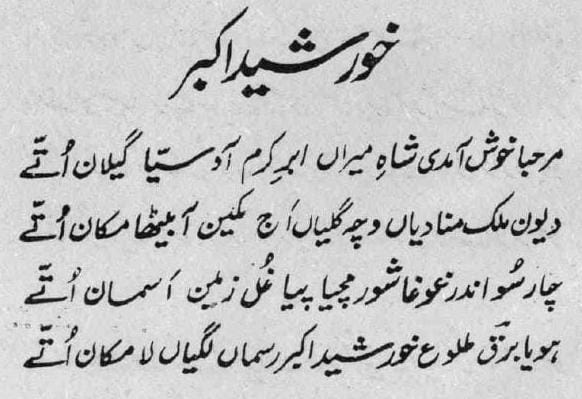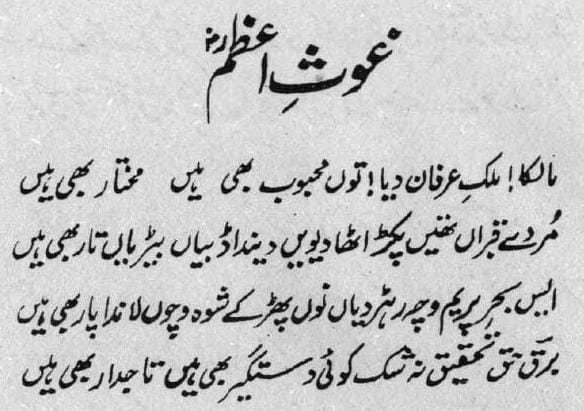Learn knowledge from our predecessors
“Allâh bears witness that Lâ ilâha illa Huwa (none has the right to be worshipped but He), and the angels, and those having knowledge (also give this witness); (He always) maintains His creation in justice. Laa ilaaha illa Huwa (none has the right to be worshipped but He), the All‑Mighty, the All-Wise”
[Aal ‘Imraan 3:18]
Write your awesome label here.
Pick of the mounth
Imam Al-Nawawi - Hadith
Riyad-us-Saliheen
Riyad-us-Saliheen by Imam Al-Nawawi
The book was compiled by Imam An-Nawawi who was the great scholar of Hadith and Fiqhof his time. Commentaries on the Ahadith have been added by Hafiz Salahuddin Yusuf of Pakistan who had originally executed them for the Urdu edition of this book. The English translation of the book and the - commentaries was performed by Dr. Muhammad Amin and Abu Usamah Al-Arabi bin Razduq who have performed their task with utmost care and profound interest.
Authentic Quran research material
We try to present publications based on authentic research material in lines with the Qur'an and Sunnah, and that are free from every type of vague conception, weak authority and false ideas.
Now, we have published Riyad-us-Saliheen with the same spirit and same tradition of good research work, professional editing and excellent printing standard.
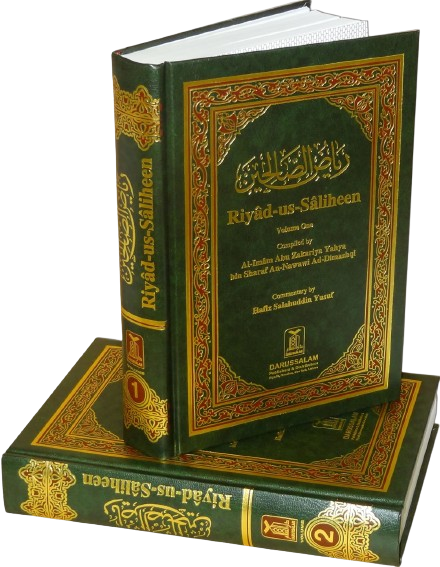
The importance of this book
This book can be bought online on different websites. On of our recommendations is madani bookstore
Recent book talks in classes/articles and sermons
Course Lesson
Ayyuhal Walad
Ayyuhal Walad by Imam al-Ghazali
This book offers twenty four pieces of valuable advice to seekers of knowledge. It touches on all aspects of life, from material wealth and the love of this life, to Islamic etiquette and acquiring knowledge.
Course activity
The reason for writing the book Ayyuhal Walad and why we chose this book as a handbook will also be discussed.
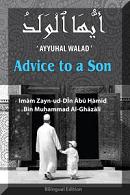
The importance of this book
This book can be bought online on different websites. On of our recommendations is madani bookstore
Featured Books
Categories
Hadith
Imam Al-Nawawi - Hadith
Riyad-us-Saliheen
We praise Allah that He enabled us to publish many books on religious topics in the Arabic, Urdu and English languages which acclaimed great popularity in Arab countries as well as in America, France and European countries besides Pakistan, India and many African countries.
We try to present publications based on authentic research material in lines with the Qur'an and Sunnah, and that are free from every type of vague conception, weak authority and false ideas.
Now, we have published Riyad-us-Saliheen with the same spirit and same tradition of good research work, professional editing and excellent printing standard.
The book was compiled by Imam An-Nawawi who was the great scholar of Hadith and Fiqhof his time. Commentaries on the Ahadith have been added by Hafiz Salahuddin Yusuf of Pakistan who had originally executed them for the Urdu edition of this book. The English translation of the book and the - commentaries was performed by Dr. Muhammad Amin and Abu Usamah Al-Arabi bin Razduq who have performed their task with utmost care and profound interest.
We, hopefully, can proclaim that it is the best representation of Riyad-us-Saliheen ever produced in any language any where. May Allah accept our sincere efforts regarding the propagation of His religion throughout the world, and bestow on us His blessings to fulfil our resolutions in this regard -Amin!
Abdul Malik Mujahid General Manager Darussalam

Muhammad Imdad Hussain Pirzada - Hadith
Bukhari The Sublime Tradition volume 1
Bukhari: The Sublime Tradition' English rendering of Imdad al-Bukhari fi Sharh Sahih al-Bukhari by Muhammad Imdad Hussain Pirzada, Founder & Principal of Jamia al-Karam, England.
This is Volume One, which starts with Book 1; Beginning of Revelation to Book 8; Prayer. (Hadiths to 1 to 520). A new English translation and modern commentary of Sahih al-Bukhari, the first ever to be written in the United Kingdom for the twenty first century audience.
Almighty Allah has rendered the glorious life of the final Messenger, Prophet Muhammad, Allah bless him and grant him peace, an excellent example to follow and commanded, “And whatever the Messenger gives you, take it; and whatever he prohibits you, refrain from it.” (Qur’an 59:7).
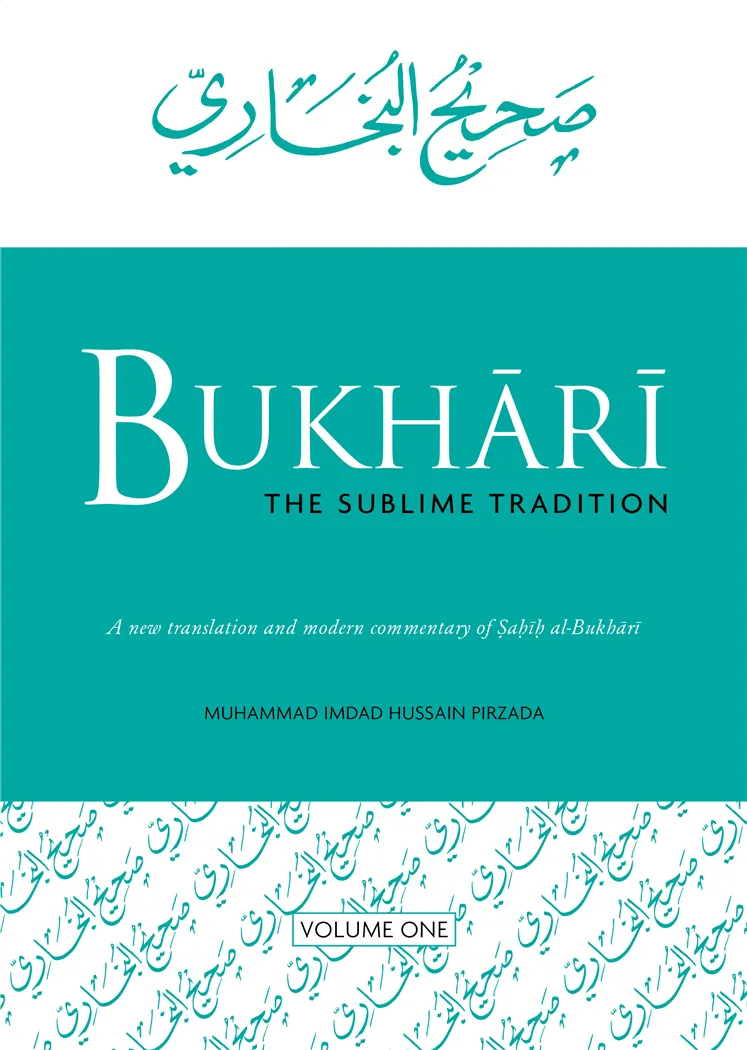
Ibn al-Arabi - Hadith
Divine Sayings : The Mishkat al-Anwar
Mishkat al-Anwar fima ruwiya 'an Allah min al-Akhbar is a collection of 101 hadith sayings, this work is one of the most important and influential early collections of hadith qudsi. Falling into three categories, the first 40 sayings each have a full, unbroken chain of transmission that goes back to God through the medium of the Prophet Muhammad, may Allah bless him and grant peace. The second category are sayings mostly taken from well-known written collections. The final section is drawn from similar books, with Ibn 'Arabi, may Allah be pleased with him, adding one extra hadith, orally transmitted. Comprised of a full introduction explaining the meaning of Hadith, the text stresses the importance of this tradition in Ibn 'Arabi's writing.
Apart from the Qur'an al-karim, the most treasured sayings in the Islamic tradition are those of the Prophet Muhammad, may Allah bless him and grant peace, himself, which form the Hadith, and none more so than the sayings of God transmitted by the Prophet Muhammad, may Allah Shower His Mercy & Blessings upon him, known as hadith qudsi ("sacred sayings").
Ibn 'Arabi’s 'Divine Sayings' is one of the most important and influential early collections of hadith qudsi. It comprises 101 sayings, drawn from the oral tradition as well as written collections.
These 'Divine Sayings' are universal in nature, expounding the divine root of all goodness and beauty, and can be appreciated by people from any background. Recurring themes include our utter dependence upon God, and His readiness to forgive and embrace those who truly turn to Him. This book is a most wonderful gift.
'Divine Sayings' is a critical edition and translation of the full Arabic text, with notes, compiled from the best early manuscripts.
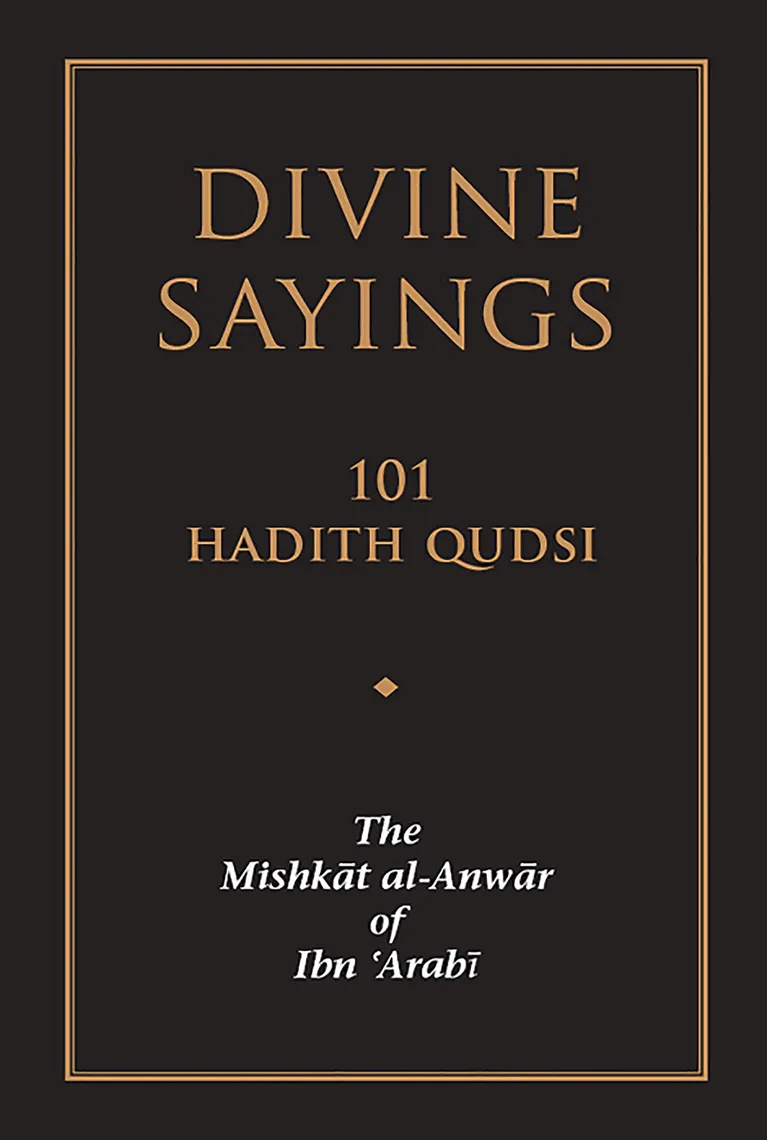
Tawhid
Imam al-Ghazali - Tawhid
Faith in Divine Unity & Trust
How can we trust in Divine Providence? Imam al-Ghazali, may Allah be pleased with him, states that everything in creation is solely initiated and originated by God. If we truly believe that each created thing reflects God's majesty and beauty, then each event in our lives also reveals God's way of guiding us. Al-Ghazali's judicious use of stories is intended to imitate the Sufi practice of master/disciple, where a novice is helped to discern how to act.
It is fair to say that the "Book of Faith in Divine Unity and Trust in Divine Providence " plays an axial role in al-Ghazali's, may Allah be pleased with him, celebrated compendium, the Ihya Ulum al-din. What is at issue is not 'Divine Unity' itself, but the implications for the community arising from the idea that everything comes from God and that "there is no agent but God."
How can we trust in Divine Providence? Imam Al-Ghazali, may Allah be pleased with him, states that "all that exists in creation--sustenance given or withheld, life or death, riches or poverty, and everything else that can be named" is solely initiated and originated by God Most High. "If the gates of mystical insight were opened to you, this would be clear to you with a clarity more perfect than ordinary vision." But those gates are not opened to most of us, so the test of our understanding of divine unity will not come by direct insight into the ways of God, but through a life of trust in which concerted practice will bring each of us personally to the threshold of the only understanding possible to us.
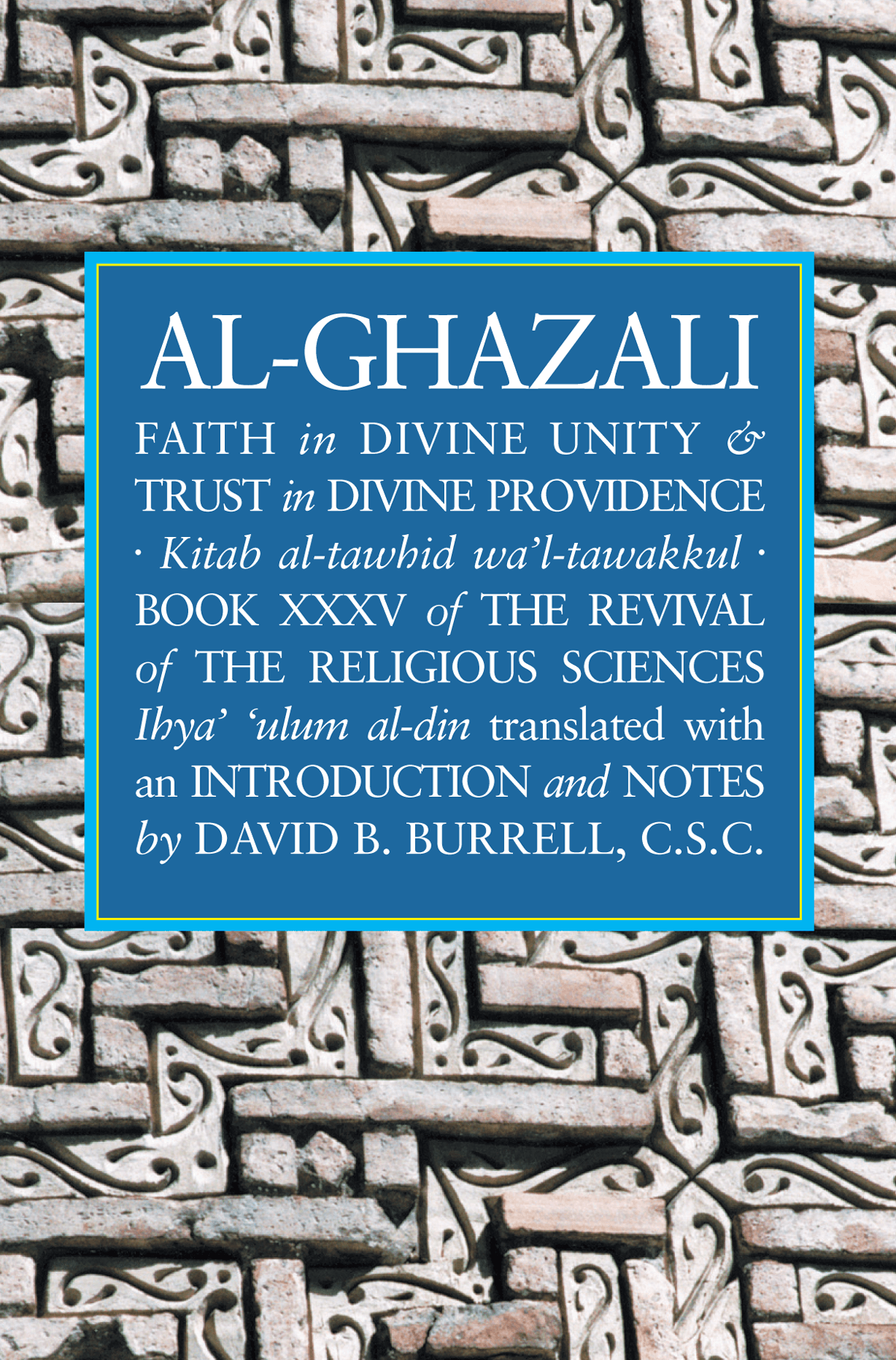
Imam al-Juwayni - Tawhid
A Guide to the Conclusive Proofs
This work, commonly known simply as a (The Guide) is a major classic of Islamic theology. Its author, Im?n al-Haramayn al-Juwayni, may Allah be pleased with him, (d. 478/1085), was the leading Ash‘arite (Sunni) theologian of his time but he was more famous for his many important treatises on the principles of law and for having been the teacher of the great Imam al-Ghazali, may Allah be pleased with him. Nevertheless, his writings in the field of theology, especially the present book, represent the high point of its development in the Islamic world until then.
Here the master sets out systematically what he considered the sure proofs for the principles of any discourse about God and His attributes, about what must be said concerning Him, and how the human being should understand what is possible in respect to God.
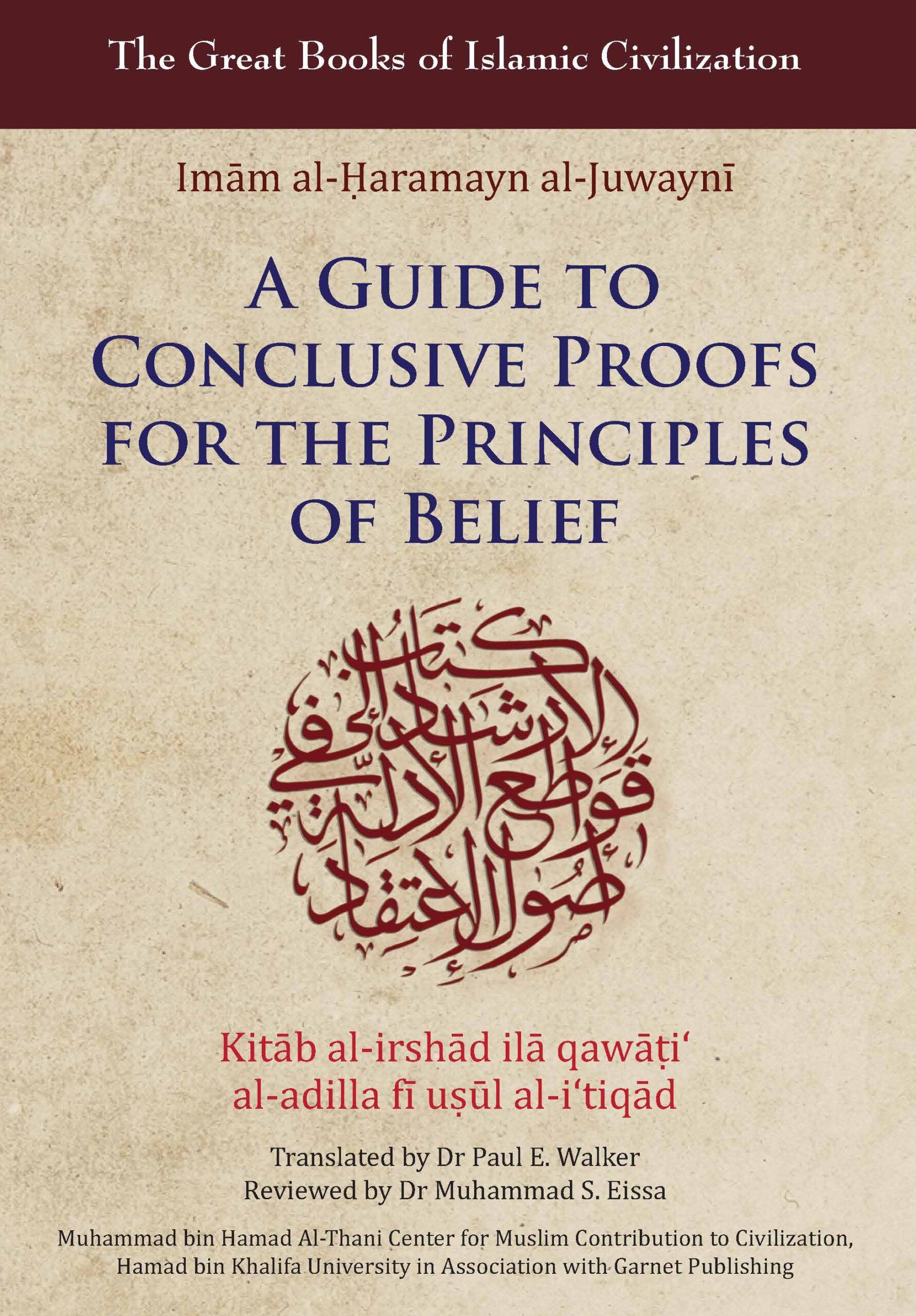
Ibn al-Arabi - Tawhid
Mysteries to the Oneness of God
This book is translation of several chapters of Ibn al-Arabi's Futuhat al-Makkiyyya, the Mysteries of bearing Witness to the Oneness of God and Prophethood of Muhammad, Salla Allahu ta'ala 'alayhi wa Sallam, which forms the basis of the first Pillar of Islam.
'' Ibn al-'Arabi's magnum opus, al-Futūhāt al-Makkiyya, 'The Meccan Openings', is known at least by name to all students of Sufism. In spite of its importance for Islamic thought in general, and Ibn al-'Arabi in particular, few scholars have taken advantage of its enormous riches because of the numerous difficulties connected with reading and understanding the text'' --- Professor William Chittick
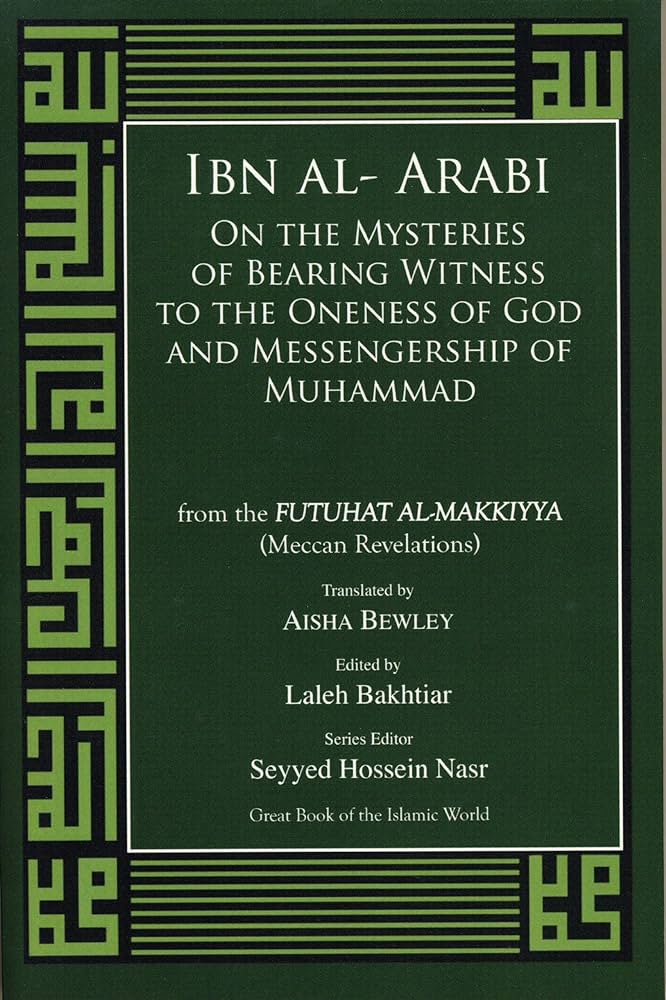
Tasawwuf
Abd al-Qadir al-Jilani - Sufism
Abd al-Qadir al-Jilani : Fifteen Letters
This book consists of Fifteen Letters (Khamsata ?Ashara Maktuban ) by al-Ghawth al-Adham; Shaikh ‘Abd Al-Qadir Al-Jilani, may Allah be pleased with him. Articulated in a sublime mystical language, the letters describe spiritual experiences that are attained through striving against one’s base desires and committed devotion to Allah Almighty. They are written in a peculiar style whereby each sentence or group of sentences is followed by a related Qur’anic text, which is often a part of a verse.
*** Fifteen letters by Shaikh ‘Abd Al-Qadir Al-Jilani,
*** Mystical interpretation of Qur’anic verses,
*** Beautifully articulated experiential spiritual advice.
The text is effectively a Sufi experiential interpretation of the quoted Qur’anic verses. This peculiar style of consistent pairing of mystical words of the Shaikh with a Qur’anic verse has produced an immensely beautiful text with a highly poetic tone.
This translation of the book is based on three manuscripts. The first is in King Saud University in Saudi Arabia, the second is in the Bodleian Library at Oxford University, UK, and the third is kept in the Special Collections Library at Michigan University, USA.
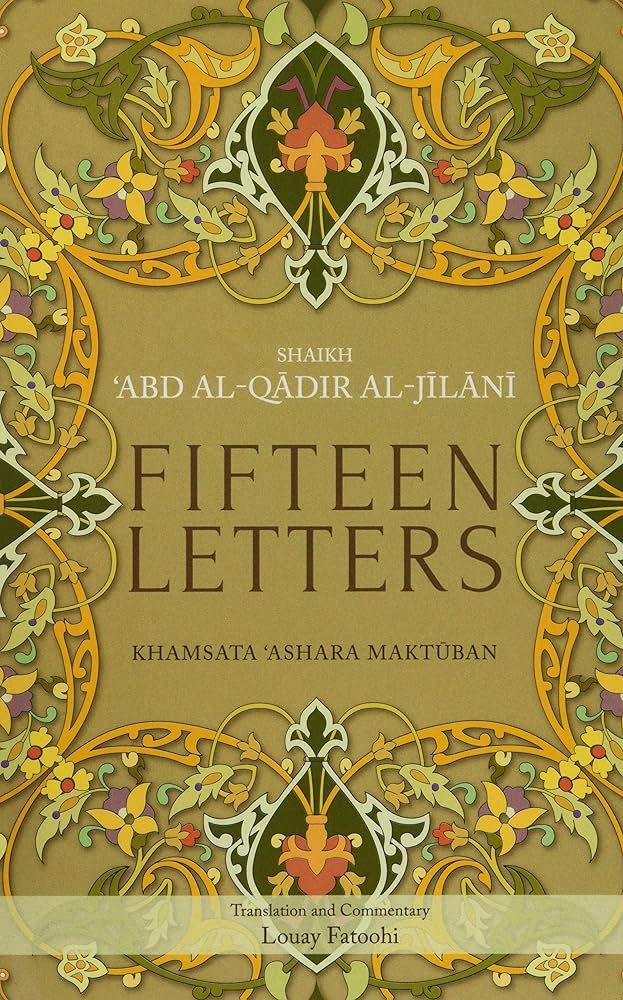
Imam al-Ghazali - Sufism
Imam al-Ghazali : Elucidication of The Marvels
This is the English translation of Book 21 of Imam Al-Ghazali’s 'Revival of the Religious Sciences' (Ihya’ ‘Ulum al-Din), widely regarded as one of the Great Classics of Islamic History. The present volume elucidates the marvels ('aja'ib) of the heart (qalb). The Imam deals authoratively with the hearts diseases and their cures.
The Heart's Disease and their Cures : Imam al-Ghazali, may Allah be pleased with him, uses a series of traditional teaching stories to illustrate the theme of the heart as a mirror. The light of the divine sun can only shine in the heart when the seeker recalls the Prophet's teaching that 'everything has a polish, and the polish of hearts is the remembrance of God.' Bad character traits, acquired through faulty upbringing, are like 'a smoke which clouds the heart's mirror'; this is the 'heart's rust' mentioned in the Qur'an. But the one who has polished his heart is made luminous by Allah's light, and brings that light to others, which is the quality of sainthood (wilayat).
About Imam Ghazali : Abu Hamid Muhammad, famous in the world of learning as al-Ghazali was born in 450 AH (1058 C.E). in Persia . He graduated from the Nizamia Madrassa at Nishapur, with distinction.a very famous educational institution in Nishapur. Later he was appointed as a teacher at the Nizamia College in Baghdad, where he proved very successful in imparting knowledge to the scholars under his care. This valuable gift of sustaining interest of his pupils and passing on his knowledge to them made him so famous that students from all parts of the country flocked to study under him.
Imam al-Ghazali was fondly referred to as the "Hujjat-ul-lslam", Proof of Islam, He is honoured as a scholar and a saint (wali) by learned men all over the world.
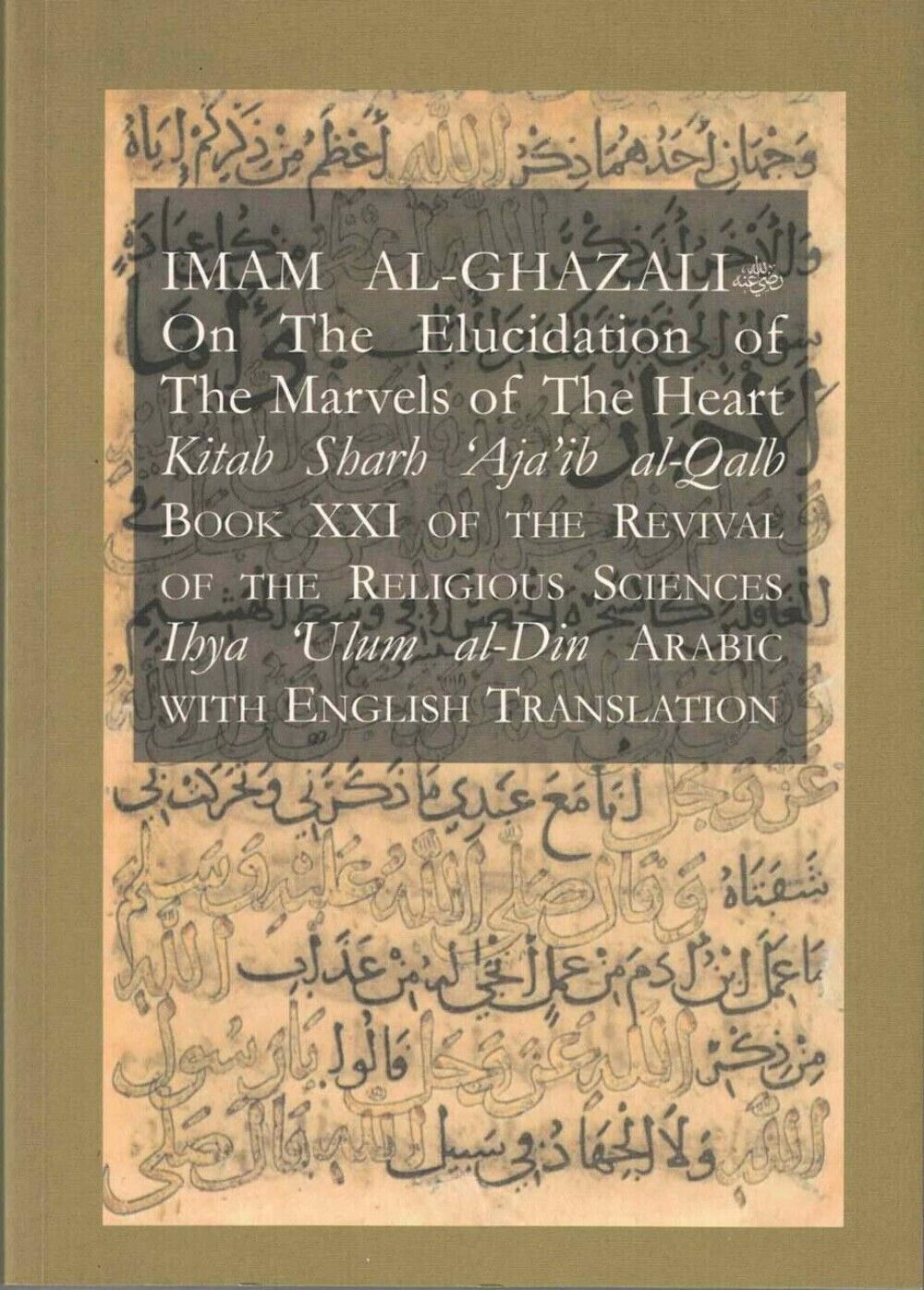
Ali b. Uthman al-Jullabi al-Hujwiri [d.469h] - Sufism
Kashf al-Mahjub : English
The Kashf al-Mahjub ; 'The Revelation of the Veiled.' One of the oldest Sufi works in Persian, it is a substantial treatise aiming to set forth a complete system of Sufism (tasawwuf). This is achieved partly by the discussion of acts and sayings of the great figures of the past, partly by discussion of features of doctrine and practice and the examination of the different views adopted by different Sufi schools. It is enlivened by episodes from the author’s own experiences.
Shaykh al-Hujw?r? came from Ghazna, now in Afghanistan, then the capital of the mighty Ghaznavid Empire. He was a Sufi mystic who travelled widely in the Middle East and Transoxiana. The Kashf al-Ma?j?b was probably written in Lahore, where he is buried, not long before his death in about 1074.
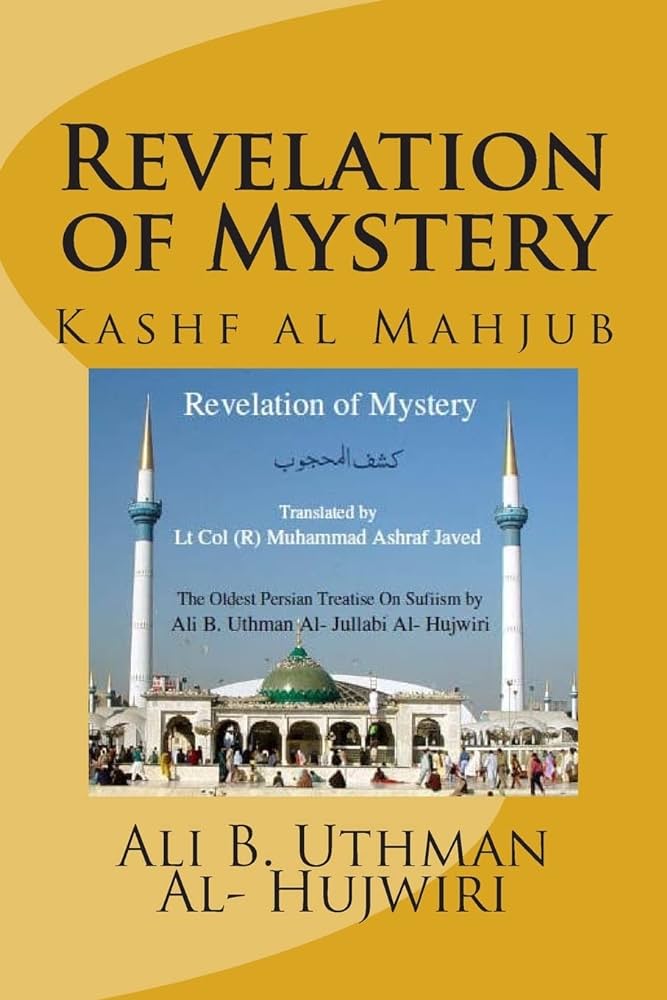
Sira
Hafidh Imam ibn Kathir [d.774h] - Sira
Al-Sira al-Nabawiyya, ibn Kathir: V1
Al-Sira al-Nabawiyya : (The Life of the Prophet Muhammad) Compiled in the fourteenth century (Common Era) by Imam ibn Kathir (a prominent Syrian scholar) Al-Sira al-Nabawiyya is a full examination, in chronological order, of the background, life and mission of the Prophet Muhammad, may Allah bless him and grant him peace.
Drawn from the earliest and most reliable Arabic sources, it offers the fullest available account of the historical circumstances and personalities most important in the founding of Islam. The quotations and anecdotes that constitute its core are evaluated in terms of the trustworthiness of their sources. Variant wordings that are related through differing lines of transmission are noted, and Ibn Kathir gives both his own assessments and those of the earliest Islamic authorities concerning the likely authenticity of these records. The comments and conversations, derived from ancient texts, that are quoted in this work constitute the basis of our knowledge of Islam during the lifetime of its founder.
The first volume of this four-volume set relates the history of the Arab tribes who were the Prophet’s, may Allah bless him and grant him peace, forebears, the lives of his parents, and the accounts of unusual events surrounding his birth. It then goes on to relate anecdotes regarding his childhood, the signs of the Prophethood, and the first revelations.
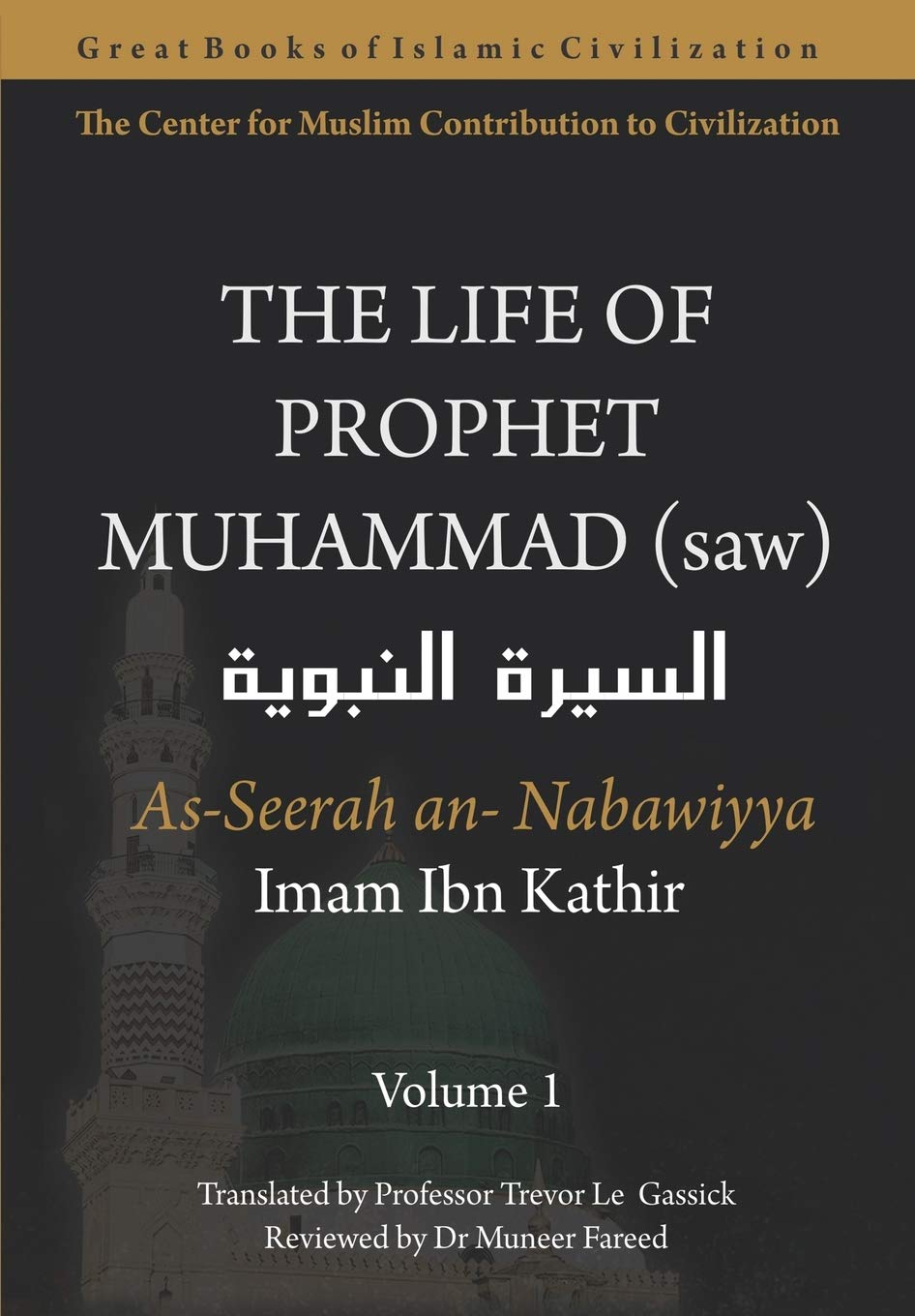
Dr. Hafiz Ather Hussain al-Azhari - Sira
Al-Isra wa'l Miraj : An Account of the Night Journey
The Isra & Mi'raj refers to the night when the Prophet, may Allah bless him and grant him peace, was taken on a miraculous journey by Allah Almighty. Most scholars agree that this night fell on the twenty-seventh of the month of Rajab, one year before the migration of the Prophet, may Allah bless him and grant him peace, from Makka to Madina.
The word Isra means to travel by night. This indicates the Prophet's, may Allah bless him and grant him peace, journey from Makka to al-Masjid al-Aqsa in Jeruslaem. Mi'raj means 'the means of ascending.' This word is used to describe the upward journey from Jerusalem to the Heavens and beyond.
The true importance and significance of this night for our Beloved Prophet, may Allah bless him and grant him peace, is perhaps beyond our limited comprehension. Despite the huge amount of literature available regarding this night, the countless ahadith and the sayings of our pious predecessors, we can merely outline what happened on this auspicious occasion. The true nature and reality of this night is in essence a beautiful secret between Allah Almighty and His Beloved Messenger, salla Allahu ta'ala 'alayhi wa Sallam.
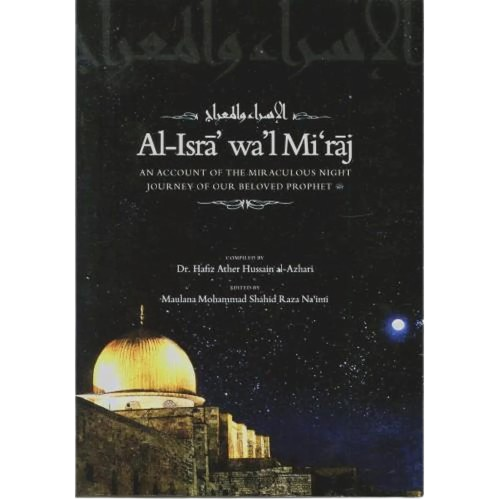
Ibn al-Arabi - Sira
The Tree of Being
The Tree of Being (Shajarat al-Kawn) is a treatise written by Ibn Arabi (1165-1240), one of the greatest figures in both Islamic and universal mysticism. He wrote close to five hundred books and manuscripts. Many of them are short, but some, like Fusus al Hikam and Futuhat al Makkiyah, are books of many volumes.
Ibn Arabi, may Allah be pleased with him, knew and influenced the great men of his time, Ibn Rushd (Averroes), Jalaluddin Rumi, ibn al-Suhrawardi, may Allah be pleased with them, and others. His influence spread beyond the Islamic world and entered medieval Europe. Asin Palacios and Salverda di Grave have pointed out that Dante in the Divina Comedia derived from Ibn Arabi the great design of Hell and Paradise and also the image of the beautified young woman as guide to the Divine. Ibn al-Arabi's work The Tree of Being, is an inspired declaration of his deep love for the Beloved Prophet, may Allah bless him and grant him peace.
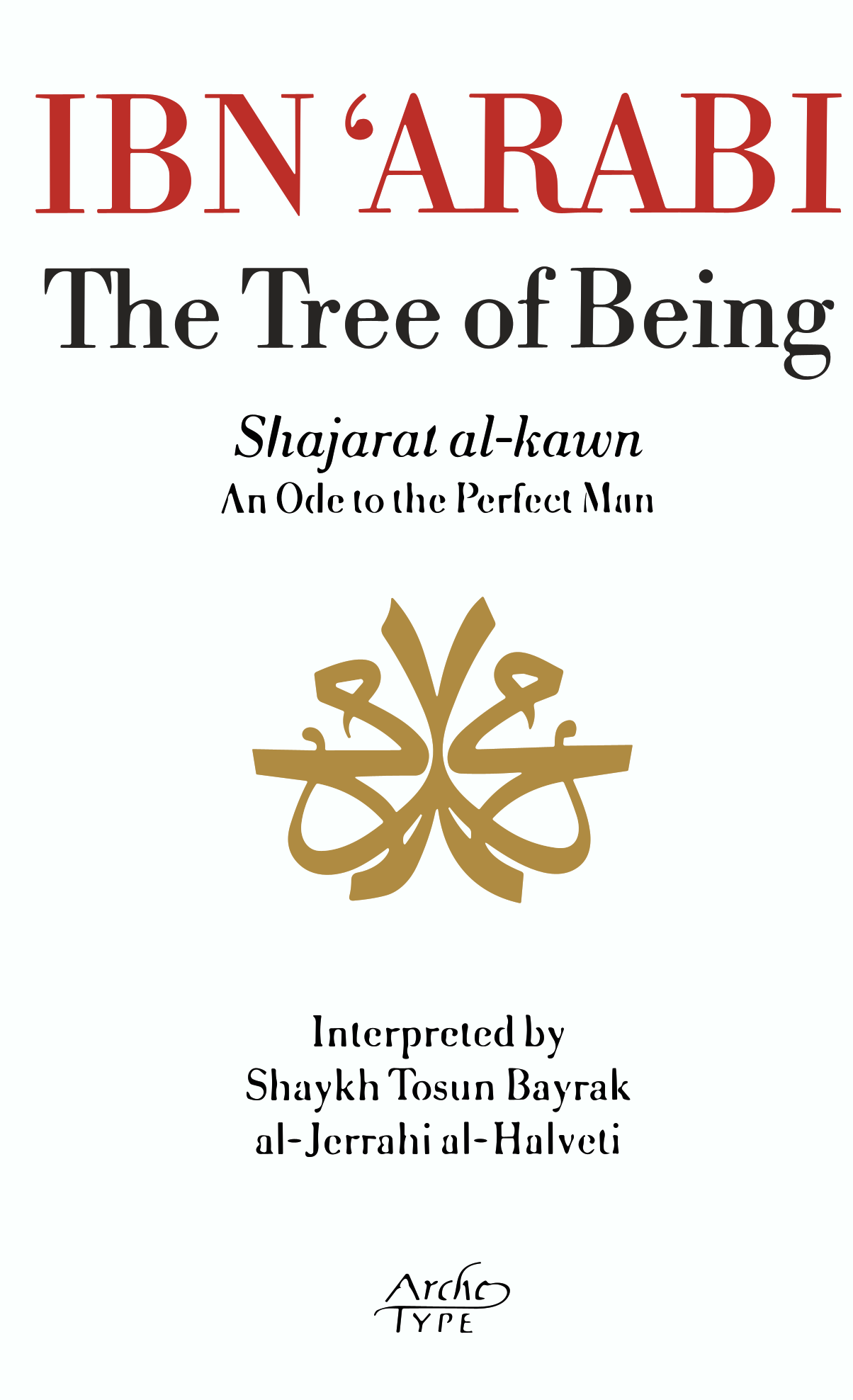
Sheikh Muhammad Siddiq al-Minshawi - Sira
100 Stories about Hadhrat Abu Bakr
One Hundred (100 Stories) Narratives of Hadhrat 'Abu Bakr al-Siddiq, may Allah be pleased with him, is actually a book written by Shaykh Muhammad Siddiq al-Minshawi in Arabic. It was later translated into urdu and then into English by others.
The specialities of the narratives and the biographies of our pious predecessors does not merely increase our faith (imaan), but they rejuvenate the lessons to allow us to become submissive and humble, charitable, ascetic and in worship become more spiritually uplifted.
........ contains over 100 short narrations.
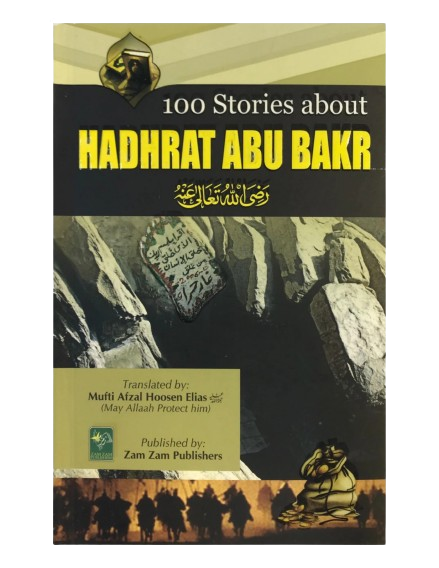
Fiqh
Qadi Muhammad ibn 'Abd ar-Rahman as-Safadi - Fiqh
The Mercy in the Diff. of the 4 Sunni Schools
This book is the first translation into English of a well known and widely used, six hundred year old classical Arabic text, its author, Qadi as-Safadi [d.1378 AH] of Damascus, may Allah be pleased with him, designed it for his contemporaries as a reference book to acquaint the followers of the four schools of fiqh with the ruling of the other schools, so that needless antagonism and misunderstandings did not spring up out of ignorance and prejudice.
The need for such a book is even more pressing in the present circumstances, and this excellent and succint book which covers the whole spectrum of the Deen is a timely and much needed addition to the Islamic source material available in the English language.
This book is designed as a reference guide to acquaint the followers of the different schools the rulings of the other schools so that confusion and misunderstandings do not occur out of lack of knowledge.
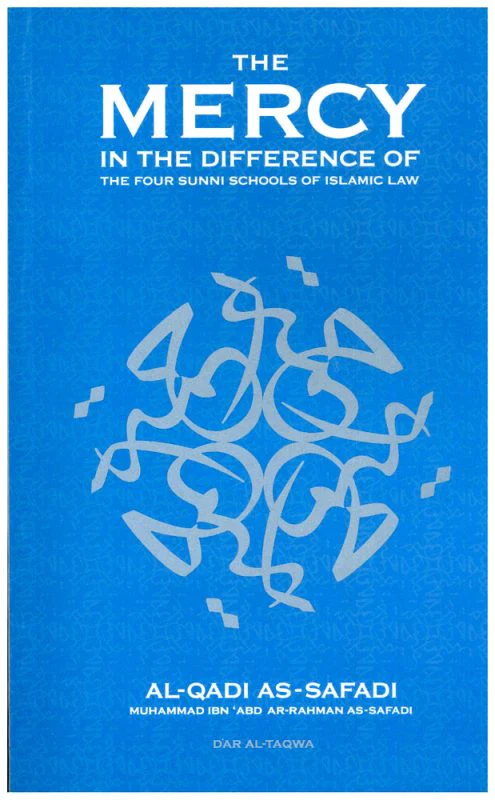
Al-Nu`man ibn Thabit al-Taymi, al-Imam Abu Hanifa - Fiqh
Abu Hanifah: The Scholar & the Student
The Scholar and the Student : This work relates to one of the dialogues between the noble scholar Imam Abu Hanifah, may Allah be pleased with him, and one of his students regarding the subject of knowledge. It is recorded in the form of questions and answers. Commentary is also provided on each specific point. Chapter headings have been added to make matters easy.
The Scholar is the one who knows and the Student is the one who wants to know. There are many important issues dealt with in this text and it shows practical use of the knowledge of Islamic belief.
This is not a beginner’s book; for that see Volume 2 of the Abu Hanifah, may Allah be pleased with him, works. This text has been published for the first time with its original Arabic, translation and commentary. This is the only commentary of its kind in the English language. Translation and commentary by Arfan Shah al-Bukhari, rahimahullah.
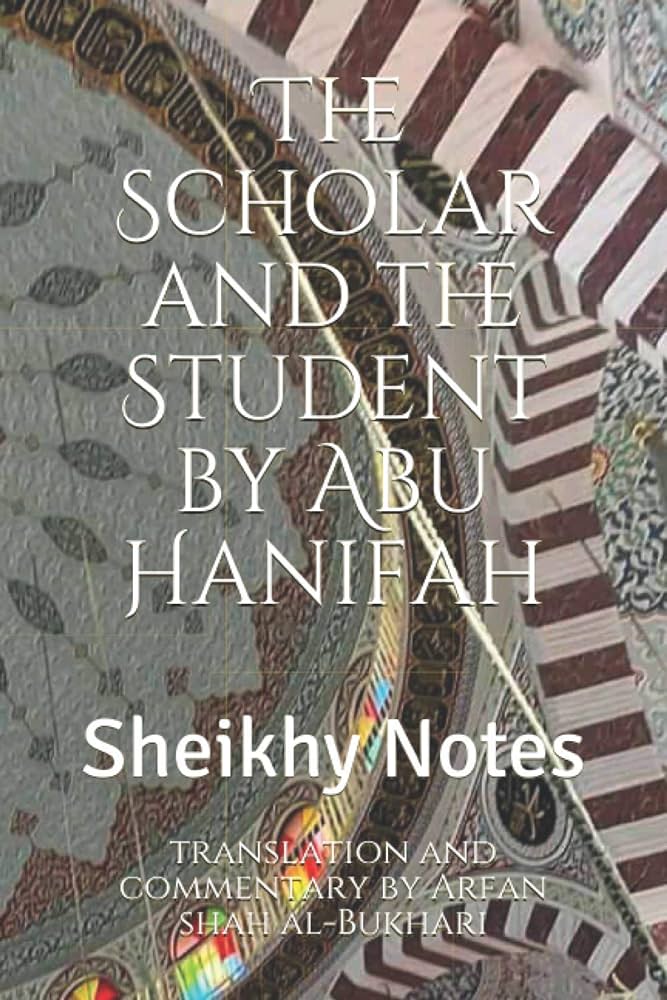
Abu ’l-Muntaha al-Maghnisawi - Fiqh
Al-Fiqh al-Akbar Explained : English
Al-Fiqh al-Akbar is one of the earliest texts written on Islamic creed and one of the surviving works of Abu Hanifa, the Great Imam of jurisprudence and theology. Studied for centuries in the Muslim world, Al-Fiqh al-Akbar offers a more nuanced, textured approach to understanding divine oneness (tawhid), the focal point of Islamic belief. It refines one’s understanding of the Creator, the messengers and divine communication, and enables one to gain much-needed insight into the realities of this life and the events of the hereafter.
Al-Fiqh al-Akbar not only improves one’s understanding of 'aqida and deepens one’s appreciation of his or her beliefs, but it endeavors to address questions, which, if left unanswered, could leave insidious doubt and cause communal division. Such questions include: Where is Allah? Does Allah evolve? What constitutes true Islamic belief? Are Prophets capable of sinning? Is there creation beyond what we see? What comes after death?
This translation of Al-Fiqh al-Akbar is an unprecedented contribution to the subject of 'aqida in English. A lucid rendering, unhampered by sterile literalism, it draws on a number of commentaries to unlock a subject that has been largely inaccessible to an English readership. This is due both to the subject’s complexity and the lack of reliable works in English. Combining Maghnisawi’s basic commentary with copious notes carefully selected from 'Ali al-Qari’s super-commentary and the entire Kitab al-Wasiyya of Abu Hanifa, this edition promises to be an essential guide on the intellectual and rewarding journey through Islamic creed.
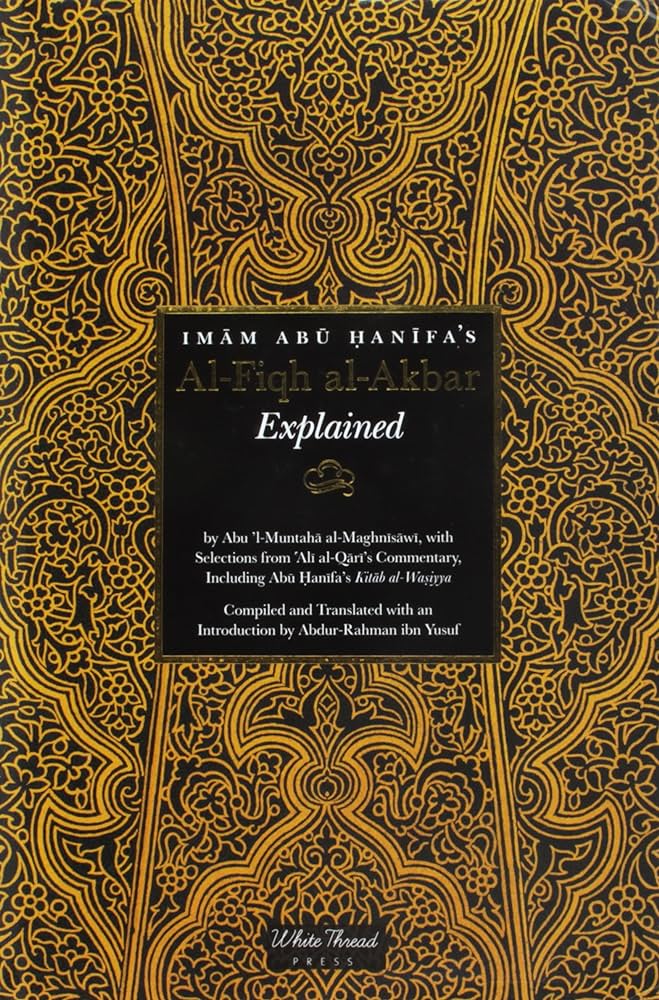
Dars e Nizami
Qadi Muhammad ibn 'Abd ar-Rahman as-Safadi - Dars e Nizami
Illustrated Tajweed Guide : 2 Volumes
Illustrated Tajweed Arabic/English New Edition :
The author has included in this exceptional work the most correct material and detailed definitions relating to the science of tajweed, utilising vivid illustrative pictures of the organs of speech and what relates to them, and using colours to clarify some tajweed concepts and distinguish them from each other. He has also attached some QR codes to clarify some phonic facts.
To make the benefit more complete, he has attached two topics related to the Qu'ran: The first relates relates to the different stages of development of the script of the Qu'ran, and the second relates to the memorisation of the Holy Qu'ran and some important matters.
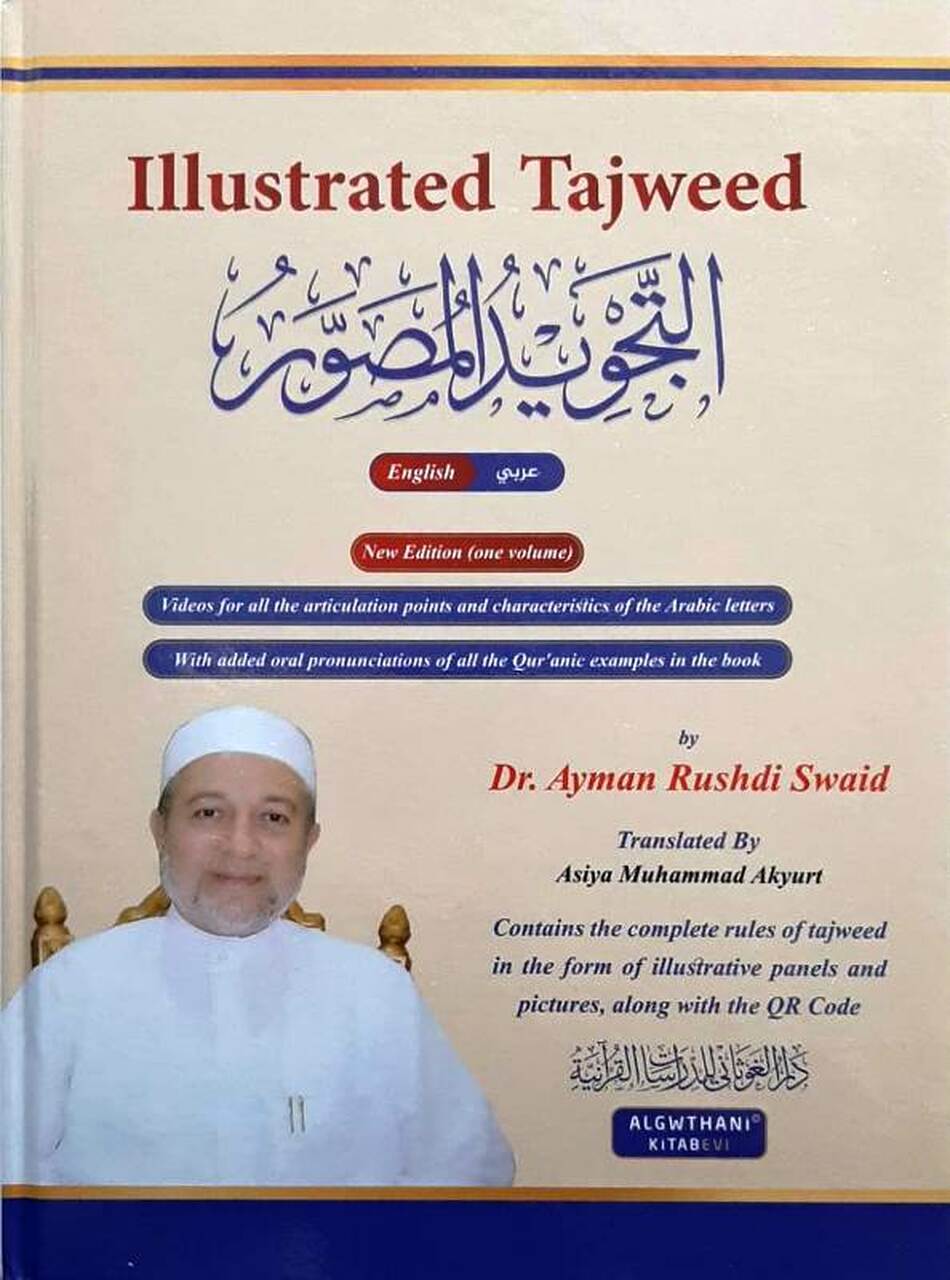
Imam Al-Ghazali - Dars e Nizami
Letter to a Disciple, Ayyuha'l-Walad
An old disciple of Imam al-Ghazali, may Allah be pleased with him, had studied the Islamic sciences, including the many works of his master, for most of his life. Faced with the proximity of death, he turns again to his master this time asking for a summary of all his teachings. "Letter to a Disciple" is Ghazali's response.
‘Work for your terrestrial life in proportion to your location in it, and work for your afterlife in proportion to your eternity in it.’ This is part of the advice that the great theologian and mystic al-Imam Abu Hamid al-Ghazali, May Allah be pleased with him, (1058-1111 C.E) put down in his Letter to a Disciple.
The emphasis in this short treatise is on religious and spiritual action and on putting into practice the knowledge that one has acquired. Letter to a Disciple can be considered as the last testament of he who is regarded as Hujjat al-Islam, the ‘Proof of Islam’. This new translation is presented here as a bilingual, English-Arabic, edition.
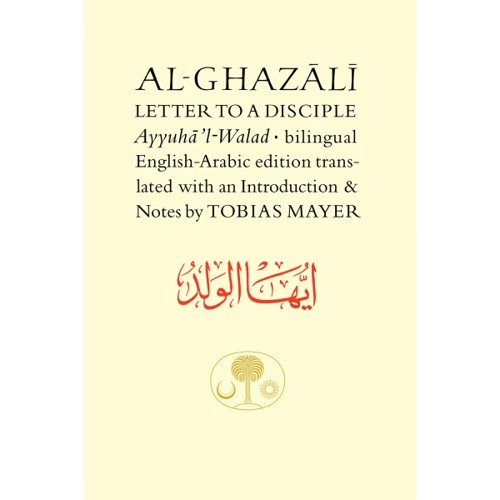
Imam Hafiz ibn al-Sunni [d.364h]- Dars e Nizami
Riyad al-Muta'allimin : English
Riyadh al-Muta'alimeen : Principles for Students of Knowledge. This book is indispensable and beneficial especially for students of knowledge & teachers.
Imam ibn al-Sunni, may Allah have mercy upon him, outlines the etiquettes and guidelines for students and teachers, the methods of teaching and learning, and the different sciences that should be acquired. A salient feature of the book is that the Imam has succinctly outlined approximately three hundred educational principles and substantiated each principle with one or more hadith through his chain of transmission.
Towards the end of the book, he has outlined the different sciences a person should study and the sequence that should be followed.
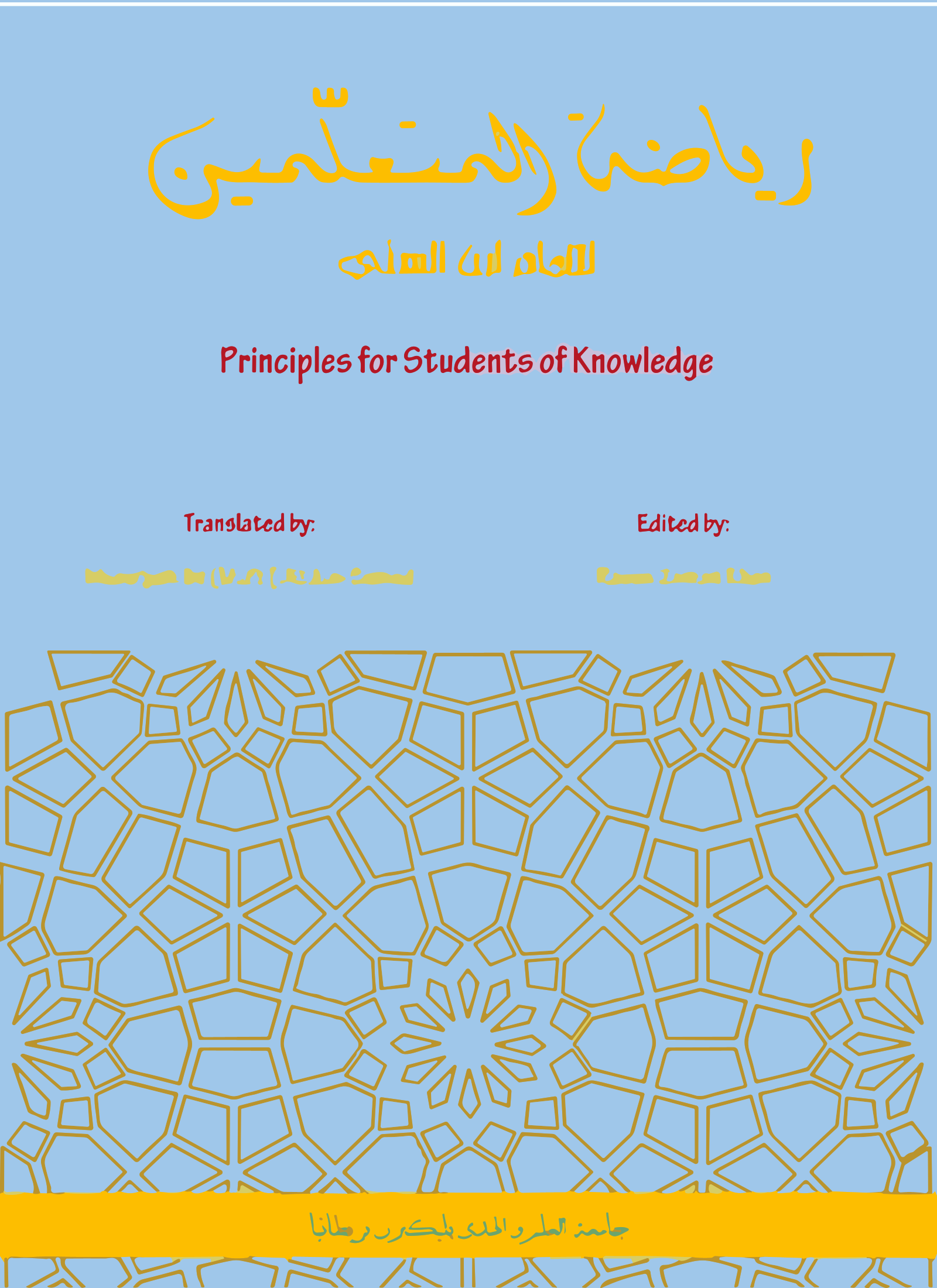
Imam Shurunbulali - Dars e Nizami
Maraqi al Falah bi Imdad al-Fatah sharh Nur al Idah
''Maraqi al Falah bi Imdaad al Fatah sharh Nur al Idah wa Najat al-Arwah.''
A commentary on a book on the jurisprudence (fiqh) of worship ('ibadat) according to the Hanafi school (madhhab) of Islamic law written by Imam Shurunbulali (d.1069 h), one of the greatest jurists of his time, this work is among the most widely studied works on the subject all around the world, being a part of the traditional curriculum for students of Hanafi fiqh.
The work covers Purification (kitab al-tahara), Ritual Prayer (kitab al-salat), Fasting (kitab al-sawm), Alms (kitab al-zakat) and the Pilgrimage (kitab al-Hajj).
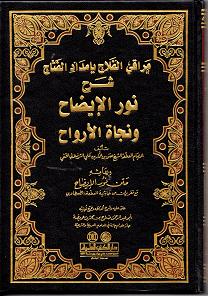
Philosophy
Imam Al-Ghazali - Philosophy
Imam Al-Ghazali : His Psychology of the Greater Struggle
Imam Al-Ghazali, may Allah be pleased with him, the best known exponent of traditional psychology, is considered by many to be one the greatest Muslim thinkers after the great Companions. His life and thought played a major role in determining the ethical and spiritual values of medieval society and continues to be influential throughout the world today.
His method was to motivate believers to action to undertake the greater struggle and morally heal.
Following an Introduction to al-Ghazali's, 'Psychology of the Greater Struggle,' the author gives a commentary upon Part One of al-Ghazali's Introduction to his famous Alchemy of Happiness (Kimiya al-Sadat) called 'Knowing One's Self.' The Alchemy of Happiness is Imam al-Ghazali's summary of his Ihya Ulum al-Din or Revival of the Religious Sciences. This work provides a unique explanation of Islamic psychology.
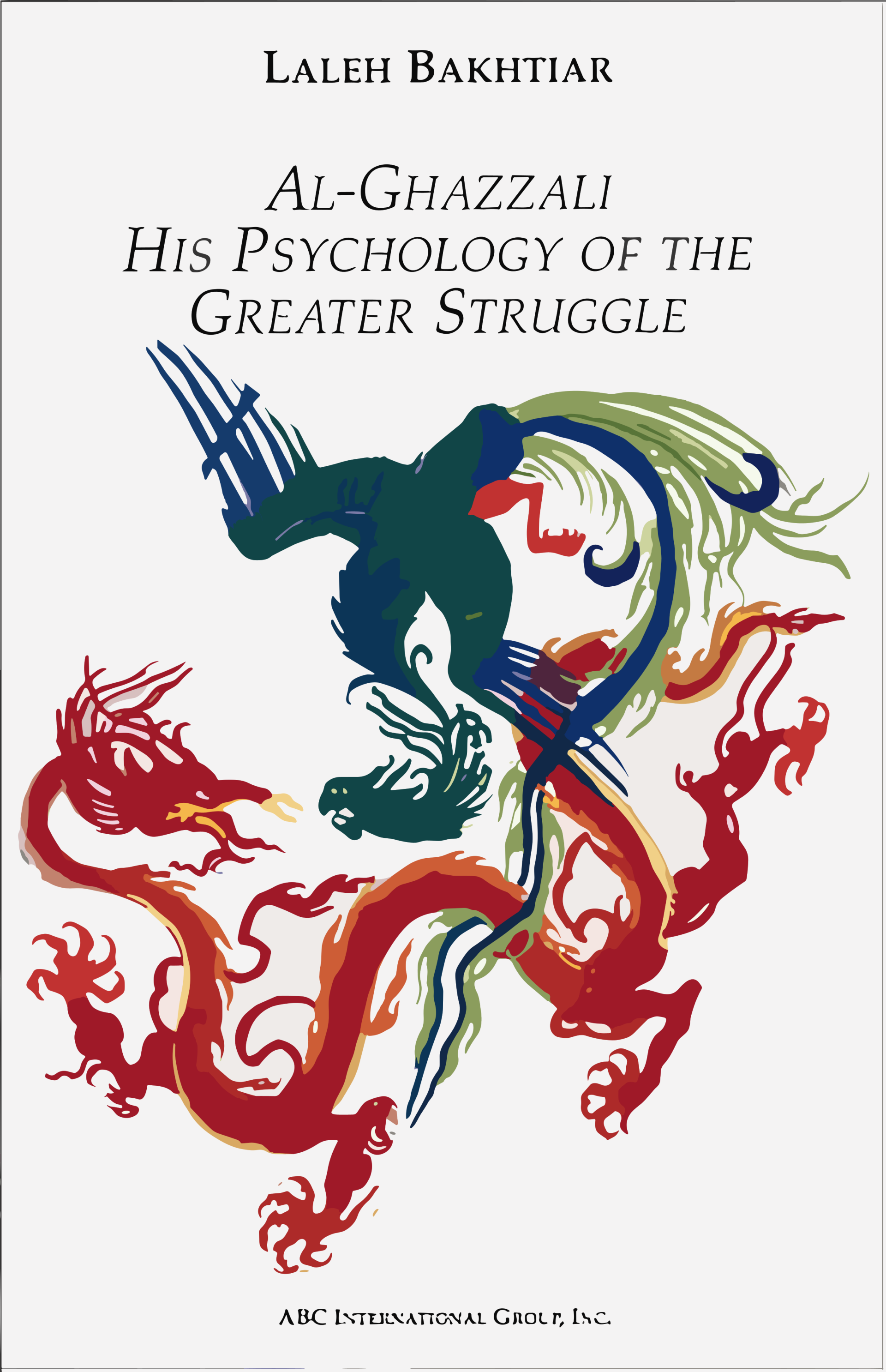
Shams-i Tabrizi - Philosophy
Me & Rumi : The Autobiography of Shams-i Tabrizi
The astounding autobiography of the man who transformed Rumi from a learned religious teacher into the world’s greatest poet of mystical love. Shams-i Tabrizi, may Allah be pleased with him, was the teacher and intensely close personal friend of Jalaluddin al-din Rumi, may Allah be pleased with him, arguably the greatest poet of Sufism.
Now that Rumi has become one of the best-selling poets in North America, interest in his life and times has increased dramatically. Practically every collection of his poetry provides a thumbnail biography, highlighting his encounter with Shams-i Tabrizi, the wandering mystic who became Rumi’s beloved companion. Rumi had been a sober scholar, teaching law and theology to a small circle of students, but the coming of Shams turned him into a devotee of music, dance, and poetry. Three years after Shams’s appearance out of nowhere, he abruptly vanished, never to be seen again. It was Rumi’s longing for the lost Shams that transformed him into one of the world’s greatest poets. Rumi immortalized Shams’s name by constantly celebrating him in his poetry as the embodiment of the divine beloved.
Everyone interested in Rumi’s poetry has been curious about Hazrat Shams Tabriz, May Allah be pleased with him, and beginning with Rumi’s own son and other hagiographers, a great deal of legend was built up. Over the centuries Shams became a trope of Persian, Turkish, and Urdu literatures. Modern scholarship has made little headway in explaining who Shams was or how he was able to play such a decisive role in Rumi’s life, though a good number of theories have been advanced.
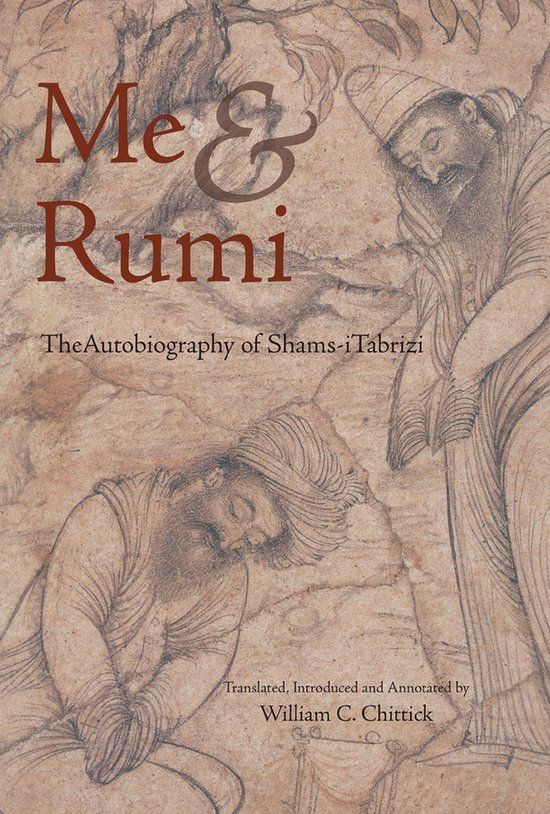
Ibn Sina - Philosophy
A Concise Life
Ibn Sina, (980 - 1037 CE) who is referred to as Avicenna in Latin, was a true polymath.
Born in the tenth Century his passion for knowledge was unbound, and he made lasting contributions to medicine, maths and philosophy. His life was also full of intrigue and he served under princes and kings (and fled from them too).
With illustrations, photographs, and maps, the rich and diverse world that produced Ibn Sina is vividly brought to life.
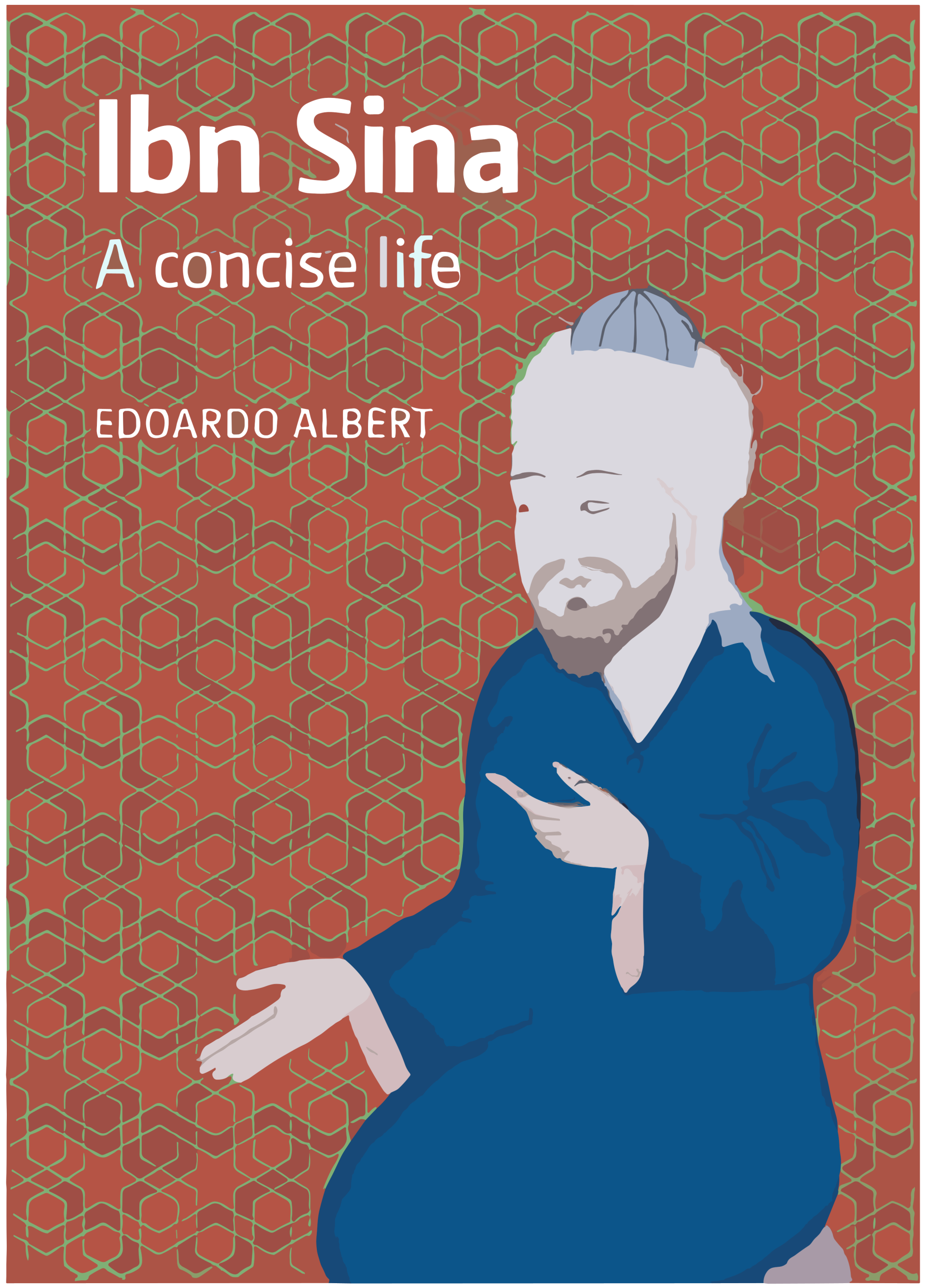
History
Edward G. Browne - History
A Literary History of Persia III & IV
A Literary History of Persia by Edward G. Browne is a veritable magnum opus covering the Pre-Islamic to the Firdawsi periods, including mysticism (tasawwuf). The author has made a splendidly thorough study of the subject, basing his conclusions on source material spread over a vast era of almost two millenia.
The book will be interesting and useful both to those who have no previous knowledge of Persian culture and history as well as to those who are already well versed in these subjects.
This edition contains Two Volumes within one book. Volume One has 535 pages, and Volume Two has 577 pages, which is a total in excess of 1100 pages. As it is printed in India it appears a bit rough round the edges, creases on the spine, with a few marks and bruises here and there.
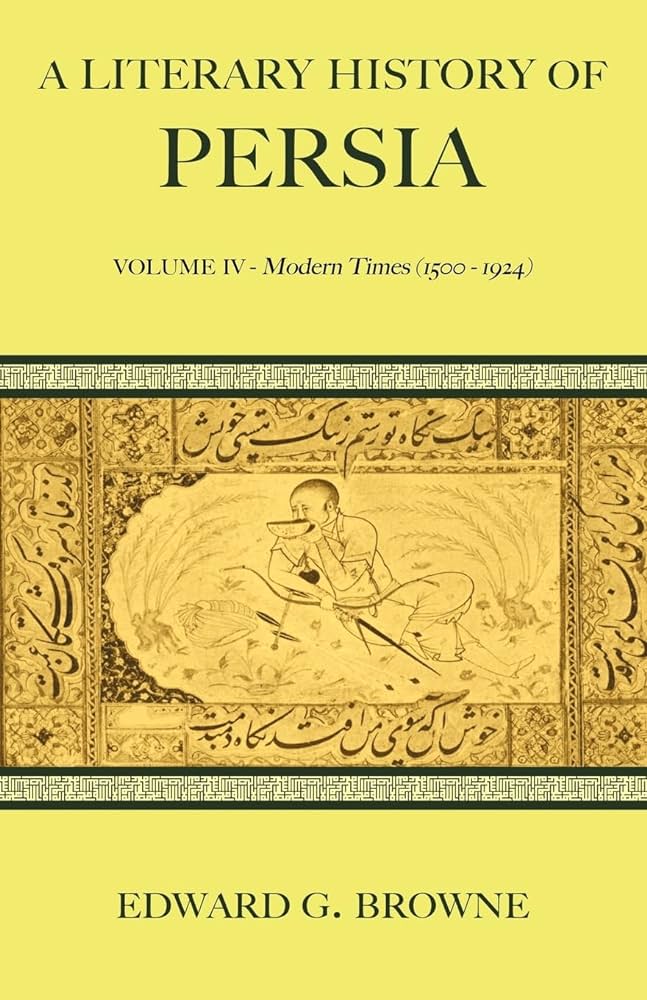
Abu Zayd al-Balkhi's - History
Sustenance of the Soul
Extracted from 'Masalih al-Abdan wa al-Anfus' - Sustenance for Bodies and Souls.
Lying preserved in the Ayasofya Library in Istanbul (Turkey) is an astonishing manuscript written by the ninth century [Common Era] polymath Abu Zayd Ahmad ibn Sahl al-Balkhi, [d. 934 CE] may Allah have mercy upon him. Centuries ahead of his time in realising the importance of both mental, as well as physical, health for human well-being, al-Balkhi discusses some very modern ideas, in a rather modern, self-help style manual.
Al-Balkhi explains symptoms and treatments giving advice on preventive measures and how to return the body and soul to their natural healthy state. In doing so he displays a keen understanding of the human condition and the medical nature of the human emotional state. An astonishing feat given that many of the conditions he discusses were left largely unknown and untreated for centuries before being clinically defined as such, only as relatively recently as the 20th century.
A creative genius, his insights on human psychopathology as well as diagnoses of psychological ailments including stress, depression, fear and anxiety, phobic and obsessive-compulsive disorders, together with their treatment by cognitive behaviour therapy, relate to us in every way and are in sync with modern psychology. Importantly they also incorporate a greater dimension to include the soul and the worship of God.
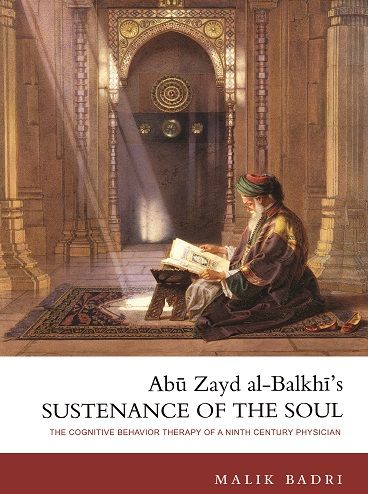
Imam Jalal al-Din Suyuti [d.911h] - History
All the Sultans Men : New
"All the Sultan's Men" is a translation of Imam al-Suyuti's text “Ma Rawahu al-Asatin fi Adam al-Maji' ila al-Salatin”. As indicated by the title, it argues and establishes the blameworthy nature of scholars associating with rulers.
Since the age of early Muslims when the Prophetic Khilafah ended and the era of Muslim kings and empires began, scholars have wrestled with the nature of the relationship between the ulema-class and rulers. Some of our most illustrious Imams, such as Imam Abu Hanifah & Imam Malik, may Allah be pleased with them, refused official appointments from rulers. Moreover, they refused to visit them in their courts. Others such as Qadi Abu Yusuf, may Allah be pleased with him, - the student of Imam Abu Hanifah - accepted official appointments.
Such disparity in the way of dealing with the rulers was echoed throughout the time of the Tabi'in. Some scholars accepted appointments, while others criticised them and refused such an association.Nonetheless, both scholar and layman require guidance on the correct measures to take in times of confusion. One may wonder, "When is it acceptable for a scholar to accept an appointment?" Or "When is it appropriate for a scholar to avoid politics altogether?" Others may ask, "Is there a middle ground between the two opinions?" Such questions require in-depth answers. Although this text is only an introduction to the subject, it provides clear guidance on what kinds of interactions with the rulers are blameworthy for scholars, and why.
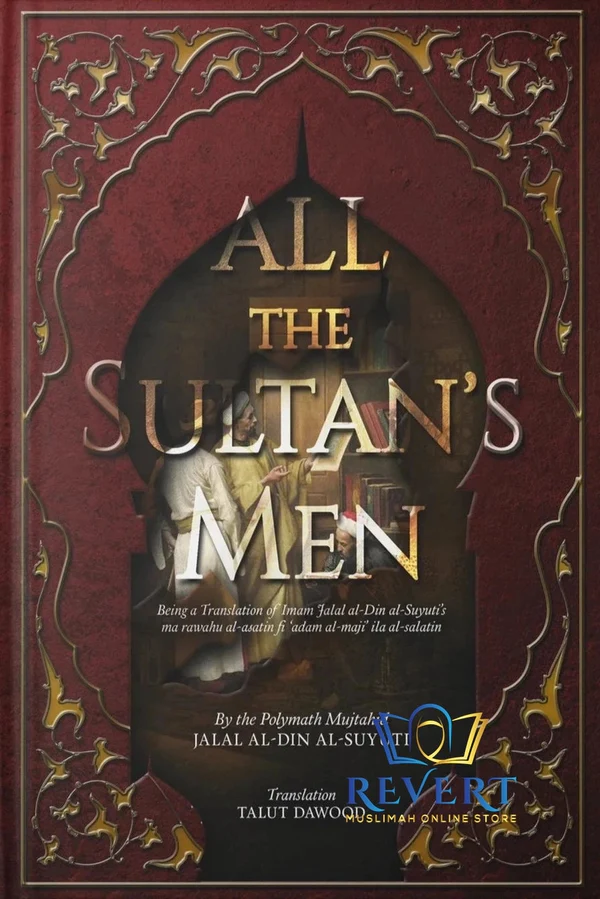
Imam Jalal al-Din al-Suyuti [d.911h] - History
History of the Umayyad Caliphs
This is a relatively new title and new translation of Imam Jalal al-Din as-Suyuti's, may Allah be pleased with him, Tarikh al-Khulafa [Part Two].
Tarikh al-Khulafa is justly famous in Arabic, and rarely out of print. In the original it comprises the histories of all those who have been named as khulafa' right up to the age in which Imam as-Suyuti himself lived. For this volume the publishers have followed up 'The Khalifahs who Took the Right Way' - with this volume on the Umayyad Caliphs.
''That was a community which has long since passed away. It has what it earned. You have what you have earned. You will not be questioned about what they did.'' - [Surah al-Baqarah 2:134].
''That was a community which has long since passed away. It has what it earned. You have what you have earned. You will not be questioned about what they did.'' - [Surah al-Baqarah 2:134].
The Messenger of Allah, may Allah bless him and grant him peace, said, ''The leaders (Imams) are from Quraysh.'' Thus al-Khulafa ar-Rashidun, the Umayyads and the Abbasids were a single seamless Qurayshi dynasty until the Mongols extirpated that line, although a small rump caliphate was to endure in Cairo under the Mamluks until the time of our author, Jalal ad-Din as-Suyuti, may Allah be merciful to him.
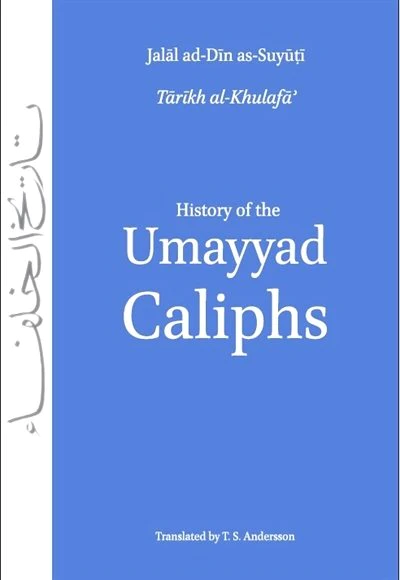
Dr Mostafa al-Badawi - History
Day of Decision: The Battle of Badr
The definitive account of the Battle of Badr, considered the greatest battle of mankind – this new book combines scholarly commentary with on the ground research (Dr Mostafa travels to all the locations and corrects many notions of previous accounts). Replete with colour photographs, maps and diagrams this edition sets a new standard on a key moment in the life of the Prophet, may Allah bless him and give him peace.
In the Qur’an it is called Yawm al-Furqan, ‘the Day of Decision’. In Ramadan 2 (March 624) two armies met at Badr, a remote spot in the Arabian desert. A small but well-equipped army of about one thousand pagans was defeated by just 313 Muslims, ill-equipped but divinely aided and spiritually unconquerable. To quote the author of this book: ‘To outsiders, this would have seemed no more than a minor skirmish between desert tribesmen. Neither the combatants, nor the location, nor the outcome had the least importance in the eyes of the wider world, where in those days the two major powers were the Persian and Byzantine empires.’ And yet there is ample reason to consider Badr the most momentous battle in history. Had the leading Muslims not survived, there would have been little prospect of Islam, the last true religion, surviving. The world’s history would have been unimaginably different.
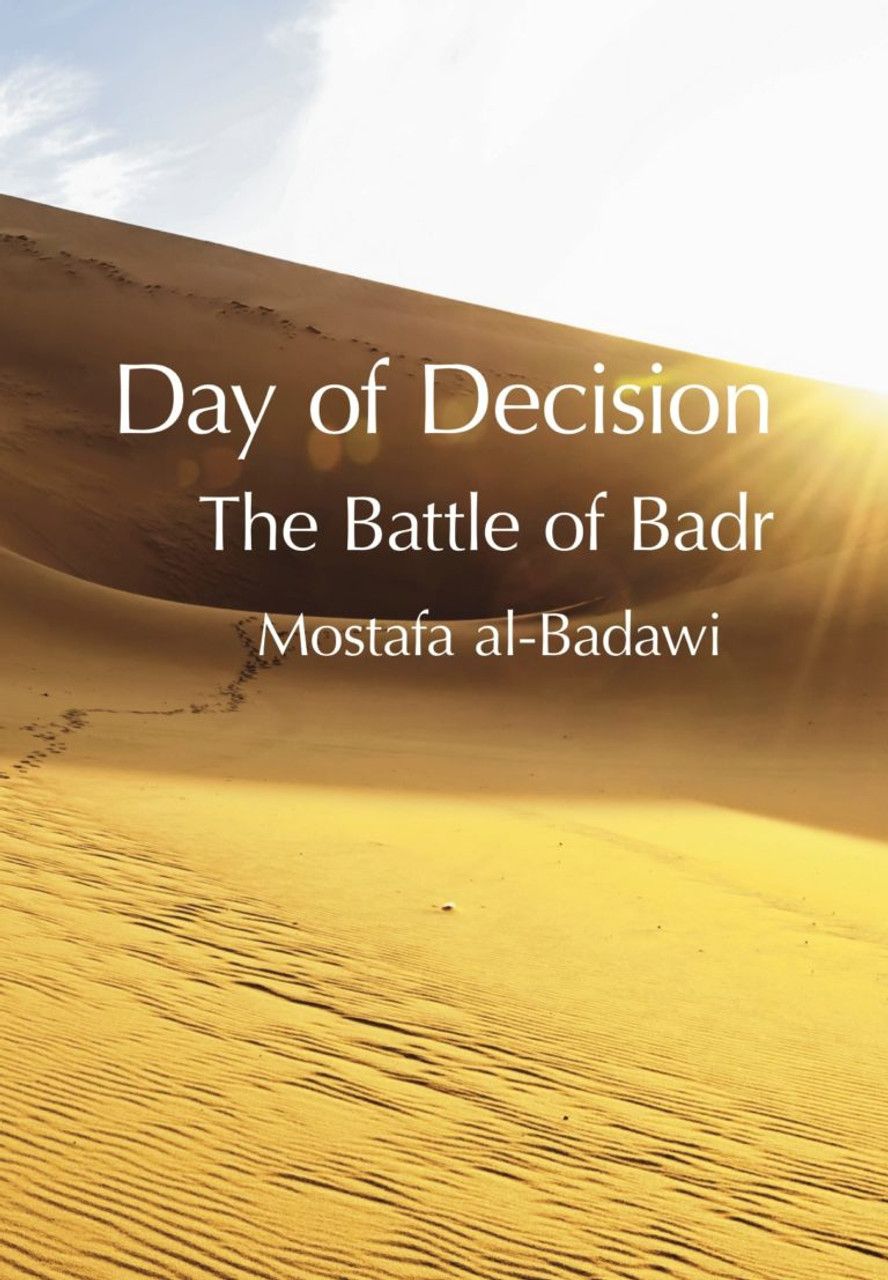
A.I. Akram - History
Khalid Bin al-Waleed : Sword of Allah
Khalid bin Al-Waleed, May Allah be pleased with him, was a dynamic military leader and one of the first heroes of Islam. Having made a dramatic conversion to the Muslim faith, he was at the forefront of the campaign to crush the Arab rebellion against Islam, and went on to conquer both Western Iraq and Syria from the Persians and Romans.
Akram gives a detailed account of Khalid bin Al-Waleed's childhood and its historical background, the conquest of Makkah, the Siege of Taif and batlles of Hunein and Uhud.
Akram gives a detailed account of Khalid bin Al-Waleed's childhood and its historical background, the conquest of Makkah, the Siege of Taif and batlles of Hunein and Uhud.
Al-Waleed's military campaigns after the demise of the Beloved Prophet Muhammed, May Allah bless him and grant him peace, from the campaign of Apostasy to the fall of the Roman and Persian empires are then examined and illustrated in comprehensive detail.
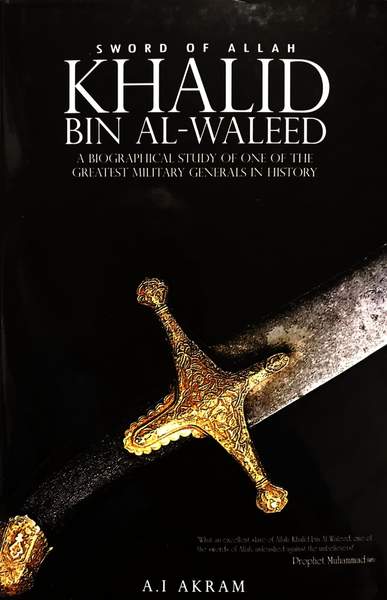
Stanley Lane Poole - History
Saladin : The Kingdom of Jerusalem
Saladin, the first Sultan of Egypt and Syria, is an iconic figure in Middle Eastern history. Stanley Lane-Poole’s acclaimed biography 'Saladin and the Fall of Jerusalem' is a complete study of the life of this noted leader: his youth, rise through twelfth-century Middle-Eastern politics, career as a military commander and the conquest of Egypt and Syria, and his intriguing clashes with Richard the Lionheart.
Throughout his life, Saladin established himself as a military commander of genius, a man of honour and an intrepid statesman, cementing his place in the annals of Middle-Eastern history.
The result of a lifetime of study by eminent historian Lane-Poole, 'Saladin and the Fall of Jerusalem' benefits from the rich and colourful chronicles of Arab and Muslim historians, providing us with a unique insight into the life and deeds of this fascinating figure.
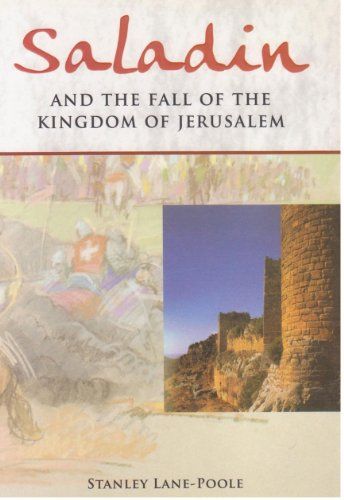
Charles River Editors - History
Suleiman the Magnificent
'Suleiman the Magnificent: The Life and Legacy of the Ottoman Empire’s Most Famous Sultan' chronicles Suleiman’s life and accomplishments, and the massive impact he had on his Empire and the world around him. Along with pictures of important people, places, and events, you will learn about Suleiman and his impact. This book serves as a good introduction to Sultan Suleiman.
The Kayi tribe was powerful, prosperous and played an important role in the Caucasus region, both at the time before Osman was born and for hundreds of years to come. To link the Ottoman dynasty with such a tribe would work as an incentive to keep up good relations with the actual Kayi tribe, and also inflate the story about how the Ottoman dynastydescended from power and political influence. It would also support the inherited right of the Ottoman dynasty to rule the area.
Suleiman would rule for about 45 years, during which the Ottoman Empire reached its greatest extent, both in terms of expansion and culture. His reforms made the Ottomans arguably the world’s most powerful force on land and at sea. It was during his reign that the Ottomans made their most forceful incursions into Europe, greatly changing the way alliances and power were balanced on that continent.
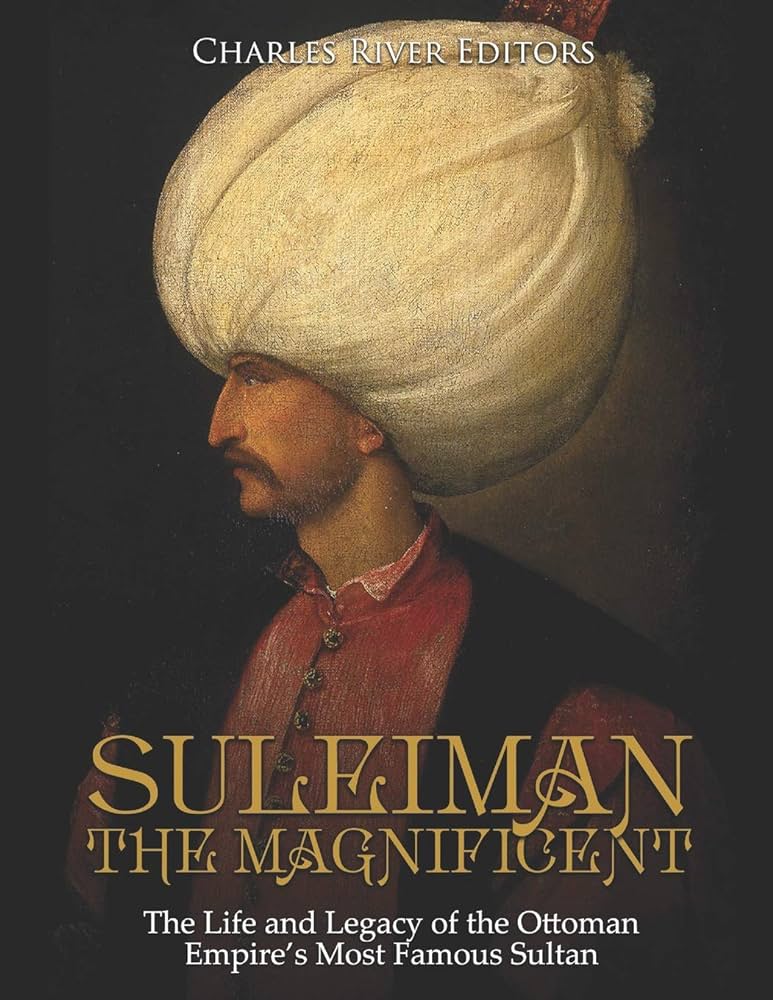
Muhammad Harb - History
Sultan Abdul Hamid II: New
There are a number of significant and yet controversial personalities throughout Islamic history that have been greatly misunderstood and misrepresented by Western historians. Sultan Abdul Hamid II is one such personality, and unfortunately, there is very little unbiased and authentic information about him in English.
Most of the information on his life has been written from a Western perspective that does not draw from Islamic and Ottoman sources. Muhammad Harb is a well-known Ottoman historian who has been serving in this field for nearly 60 years! He wrote the biography Sultan Abdul Hamid II, The Last Great Ottoman Sultan in Arabic. The original Arabic edition is one of forty-five books written by the author, but this is the first to be translated into English.
"Abdul Hamid II is one of the greatest, defamed figures in History."
---Nihal Arsiz, Turkish Writer.
"May Allah have mercy on Abdul Hamid. There were no ministers,
aides, or people of his standing. He was ahead of his time. He
was in his ability, insight and politics, able to tackle the other
nations alone. If he had aides, contemporaries and a public that
understood him, he would have left the Empire on terms with the
first era of Islam." ---Said al-Afghani.
This book was written in an unbiased academic manner, supported by multiple historical sources to shed light on a rare personality that we sorely lack in our times. Perhaps his political acumen and ingenuity contributed to solving the greatest challenges to the Muslims of the time. The most prominent of these challenges was the Zionist threat to Palestine, where he was not prepared to concede even an inch of its land. This was truly a toxic matter, an issue that affected all Muslims and their allegiances.
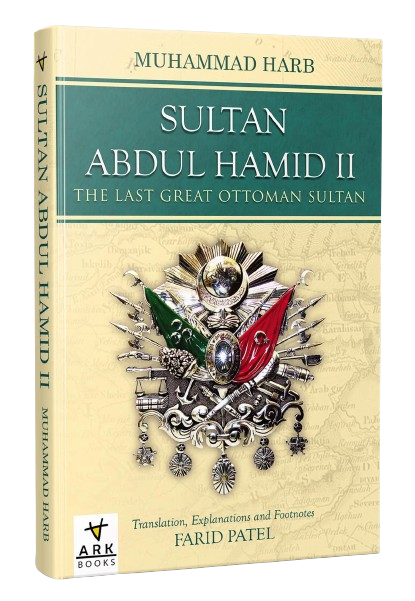
Sufi Saints
Dilaver Gürer - Sufi Saints
Abd 'al-Qadir Jilani
Shaykh Abd al-Qadir Jilani, may Allah be pleased with him, a leading Sufi figure of the 12th century, has been touching the lives of people for centuries. As Dilaver Gürer describes, Shaykh Abd al-Qadir Jilani, may Allah be pleased with him, has always been elemental to Islamic culture, history and Islamic sciences through the order he founded, the Qadiriyyah. Since then, the Sufi views of Abd al-Qadir Jilani, may Allah be pleased with him, and the Qadiriyyah order have functioned as an elaborate part of the fabric of Muslims’ lives, both on material and spiritual planes.
This book is a humble contribution to the history of Sufism as an introduction to the life of this great historical figure, Abd al-Qadir Jilani, may Allah be pleased with him, his life, his Sufi views, and history of the Qadiriyyah order.
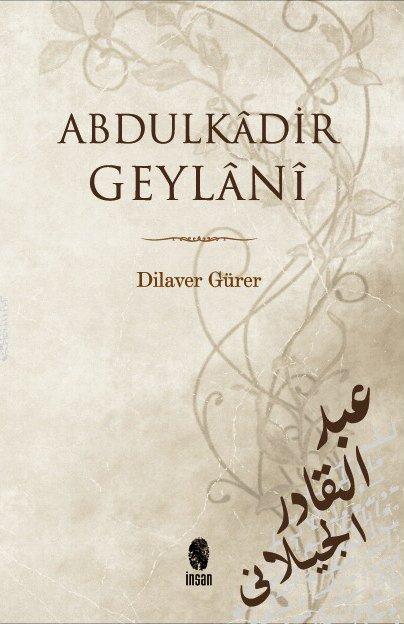
Widad al-Sikkakini - Sufi Saints
Sustenance of the Soul
First Among Sufis : The Life and Thought of Rabia Al-Adawiyya, the Woman Saint of Basra - Born in Basra in the 8th century of an impoverished family, orphaned and sold into slavery, Rabia al-Adawiyya, may Allah be pleased with her, rose to become one of the greatest Sufi teachers.
An extraordinary kaleidoscope of myth and reality, of imagination and fact... is it not of importance that a woman of such stature and independence of mind existed so early in the story of Islam, to show what women could be, and how they could be regarded?
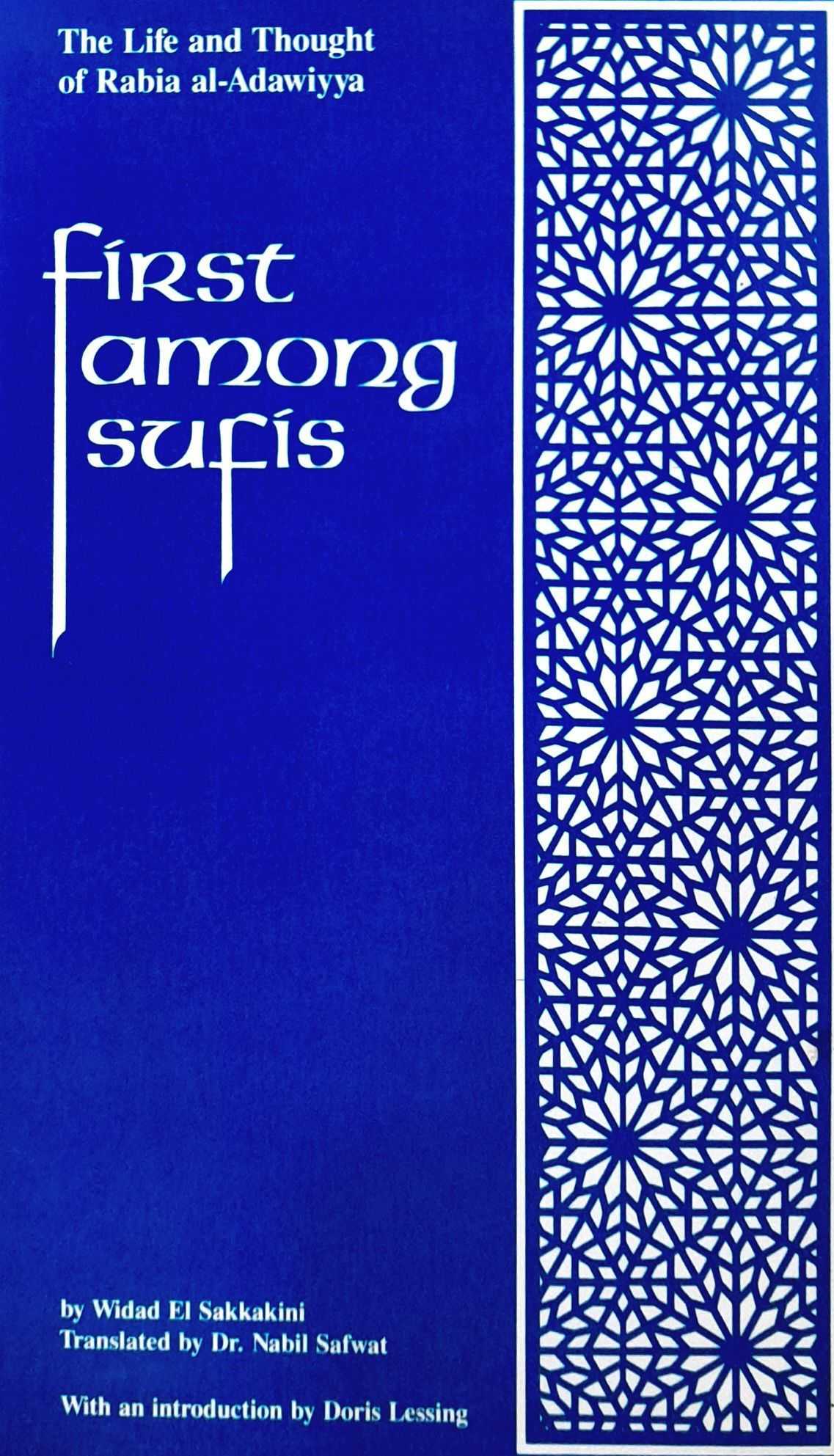
Mawlana Ilyas Attar al-Qadiri - Sufi Saints
A Brief Biography of
Imam Ahmad Raza Khan
Biography of the great Mujaddid, The Reviver and Reformer of Islam, the Imam of the Ahl al-Sunnah w'al-Jama'ah, Shaykh Imam Ahmad Rida Khan, al-Qadiri [d.1340h], 'alayhi ar-Rahman w'al-Ridwan. This is the first ever book written by Mawlana Shaykh Ilyas Attar al-Qadiri.
Contents :
---Transliteration Chart
---Du’a for Reading the Book
---A Brief Biography of Imam Ahmad Raza Khan,
---Glad tidings of Intercession,
---Auspicious birth,
---An event of childhood,
---First fatwa,
---A’la Hadrat's expertise in mathematics,
---Amazing power of memory,
---Memorising the Qur'an in just one month,
---Love for the Holy Prophet, Salla Allahu 'alayhi wa Sallam,
---Refraining from flattering the governors,
---Beholding vision of Mustafa, Salla Allahu 'alayhi wa Sallam, when awake,
---Glimpses from his character,
---A unique way of sleeping,
---The train that didnt move!
---Literature,
---Translation of the Holy Qur'an,
---The sad demise,
---Waiting in the Court of the Holy Prophet, Salla Allahu 'alayhi wa Sallam,
---The bitter cucumber.
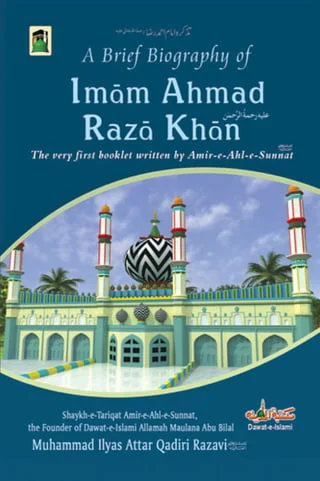
Cihan Okuyucu - Sufi Saints
Rumi - Biography and Message
First Among Sufis : The Life and Thought of Rabia Al-Adawiyya, the Woman Saint of Basra - Born in Basra in the 8th century of an impoverished family, orphaned and sold into slavery, Rabia al-Adawiyya, may Allah be pleased with her, rose to become one of the greatest Sufi teachers.
An extraordinary kaleidoscope of myth and reality, of imagination and fact... is it not of importance that a woman of such stature and independence of mind existed so early in the story of Islam, to show what women could be, and how they could be regarded?
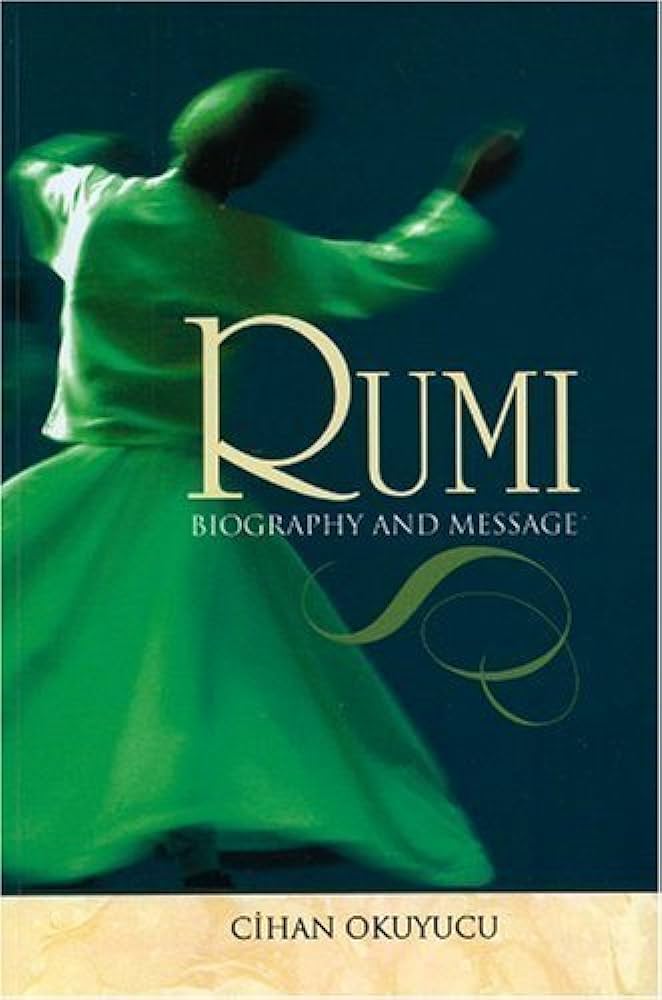
Kenneth Avery [Sufi Historian] - Sufi Saints
Life & Thought of Abu Bakr al-Shibli
Abu Bakr al-Shibli, may Allah be pleased with him - His Life & Thought in the Sufi Tradition.
Considers what is known of acclaimed early Sufi master Shaykh Abu Bakr al-Shibli, and how he was characterised in various times and places.
Early Sufi master Abu Bakr al-Shibli, may Allah be pleased with him, (d. 946) is both famous and unknown. One of the pioneers of Islamic mysticism, he left no writings, but his legacy was passed down orally, and he has been acclaimed from his own time to the present. Accounts of Shaykh al-Shibli present a fascinating figure: an eccentric with a showy red beard, a lover of poetry and wit, an ascetic who embraced altered states of consciousness.
The author offers a contemporary interpretation of al-Shibli’s thought and his importance in the history of Sufism. This book surveys the major sources for al-Shibli’s life and work from both Arabic and Persian traditions, detailing the main facets of his biography and teachings and documenting the evolving figure of a Sufi saint. Al-Shibli’s relationships with his more famous colleague Al-Junayd al-Baghdadi, may Allah be pleased with him, and his infamous colleague Mansur al-Hallaj are discussed, along with his Qur’anic spirituality, his poetry, and the question of his periodic state of mind.
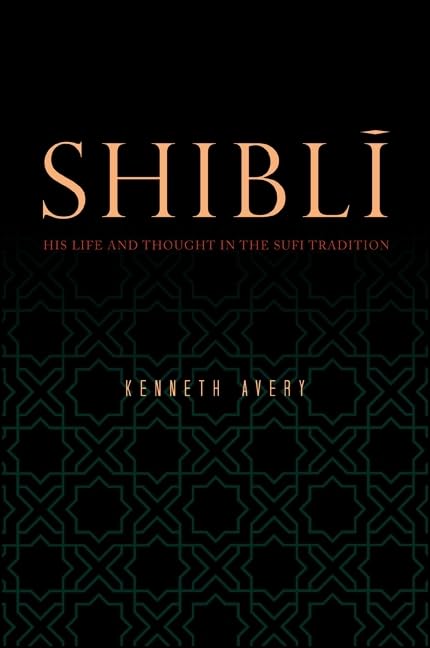
M. Yasin Owadally - Sufi Saints
Short Sufi Stories
The Sufis' tell us, 'The only books worth our attention are those which spring from the heart and in turn speak to the heart.'
Short Sufis Stories contains a collection of researched stories full of wisdom and guidance that once you read them, Insha'Allah they would adorn your hearts and minds with the beauty of Islam, the power of Allah, the wisdom of the Saints, and the wonders they work out.
While man compensates man with noble prizes in different fields of achievements, Almighty Allah compensates His lovers with His Friendship, endowed upon them spiritual powers, enlighten their hearts, so that they see by His light; un-knotting their speech, so as their eloquent voices turned a thousand stone-hearted ones to the path.
The Sufi master Data al-Hujwiri, may Allah be pleased with him, said, 'You must know that the principle & foundation of Sufism & knowledge of God rest on sainthood.'
To the seekers of the path, these stories are the very ladders that would lead you, by the grace of Allah, to the gate of truth-the keys whereof are the prescribed obligations and laws of the Shari'ah.
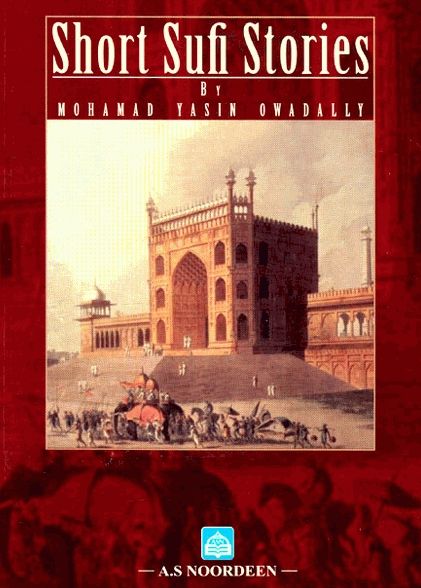
Shaykh Farid al-Din 'Attar - Sufi Saints
Muslim Saints and Mystics
Tadhkirat al-Awliya (Memoirs of the Saints) is considered a world famous Classical book of Persian literature. It is an abridgement which has been translated by A. J. Arberry of Attar's only known prose work.
Farid al-Din Attar devoted a considerable part of his life to Tadhkirat al-Awliya and before his death it was available to the masses.
Farid al-Din Attar, author of the book here presented in an abridged translation, is to be
accounted amongst the greatest poets of Persia; his dimensions as a literary genius increase with the further investigation of his writings, which are still far from completely explored, though welcome progress has been made of late in their publication.
------The Origins of Sufism,
------The Origins of Sufism,
------Sufism and Persian,
------The Rise of Persian Sufi Literature
------Attar and his 'Memorial of the Saints,'
------Sources of Attar's "Memorial"
------Comparative Table of Sufi Biographies,
---[1]. Hasan of Basra,---[2]. Malik ibn Dinar---,[3]. Habib al-Ajami,---[4]. Rabi'a al-Adawiya,---[5]. Al-Fuzail ibn Iyaz,---[6]. Ibrahim ibn Adham---,[7]. Bishr ibn al-Harith al-Hafi,---[8]. Dhu '1-Nun al-Misri,---[9]. Abu Yazid al-Bistami,---[10]. 'Abd 'Allah ibn al-Mubarak,---[11]. Sufyan al-Thawri,---[12]. Shaqiq of Balkh,---[13]. Dawud al-Ta'i,---[14]. Harith al-Muhasibi,
---[1]. Hasan of Basra,---[2]. Malik ibn Dinar---,[3]. Habib al-Ajami,---[4]. Rabi'a al-Adawiya,---[5]. Al-Fuzail ibn Iyaz,---[6]. Ibrahim ibn Adham---,[7]. Bishr ibn al-Harith al-Hafi,---[8]. Dhu '1-Nun al-Misri,---[9]. Abu Yazid al-Bistami,---[10]. 'Abd 'Allah ibn al-Mubarak,---[11]. Sufyan al-Thawri,---[12]. Shaqiq of Balkh,---[13]. Dawud al-Ta'i,---[14]. Harith al-Muhasibi,
---[15]. Ahmad ibn Harb,---[16]. Hatim al-Asamm,---[17]. Sahl ibn Abd'Allah al-Tustari,---[18]. Ma'ruf al-Karkhi,---[19]. Sari al-Saqti,---[20]. Ahmad ibn Khazruya,---[21]. Yahya ibn Mu'adh,---[22]. Shah ibn Shuja'---[23]. Yusuf ibn al-Husayn al-Razi,---[24]. 'Abu Hafs al-Haddad,---[25]. 'Abu'l-Qasim al-Junayd al-Baghdadi,---[26]. 'Amr ibn 'Uthman al-Makki,---[27]. 'Abu Sa'id al-Kharraz,---[28]. 'Abu '1-Husayn al-Nuri,---[29]. 'Abu Uthman al-Hiri,---[30]. Ibn 'Ata' al-Adami,---[31]. Samnun al-Muhib al-Khawwas,---[32]. Al-Hakim al-Tirmidhi,---[33]. Khayr ibn 'Abd Allah al-Nassaj,---[34]. Abu Bakr ibn Jafar al-Kattani,---[35]. Abu Abd Allah Muhammad ibn Khafif,---[36]. Mansur al-Hallaj,---[37]. Ibrahim ibn Ahmad al-Khawwas,---[38]. Abu Bakr al-Shibli,
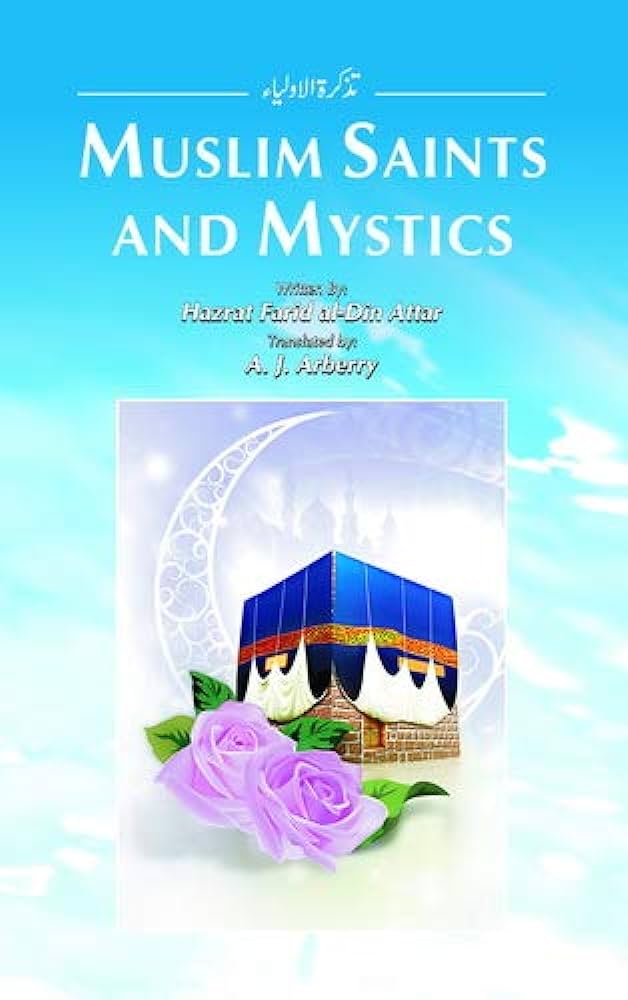
Arabic
Muhammad Fou'ad 'Abd al-Baqi - Arabic
Al Mu'jam al Mufahras : Qur'anic Dictionary
An excellent concordance of the Holy Qur'an in one large volume. This indexed dictionary of words in the Qur'an is alphabetical according to the usage of each linguistic term, with an indication of the emergence of the word in a different format.
Includes pronunciations and corresponding Surah by verse number. Contains two colour text on cream paper compiled by Muhammad Fu'ad Abd al-Baqi.
Contains Arabic text only!
Contains Arabic text only!
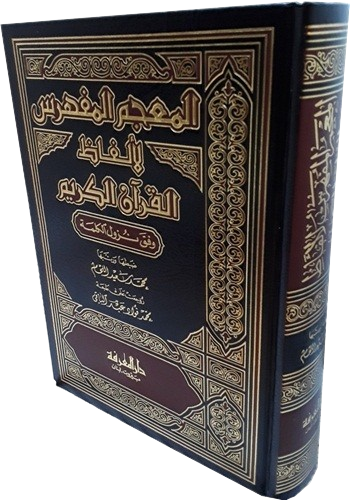
Sayyadina Shaykh 'Abd al-Qadir al-Jilani - Arabic
Al Salawat wal Awrad by Shaykh Abdul Qadir Jilani
Another unique and valuable collection of Benedictions, Blessings, Awrad and Salawat from the Supreme Sufi Grandmaster, Al-Ghawth al-Adham; Sayyadina Shaykh 'Abd al-Qadir al-Jilani, may Allah be well pleased with him.
Contains Arabic Text only!
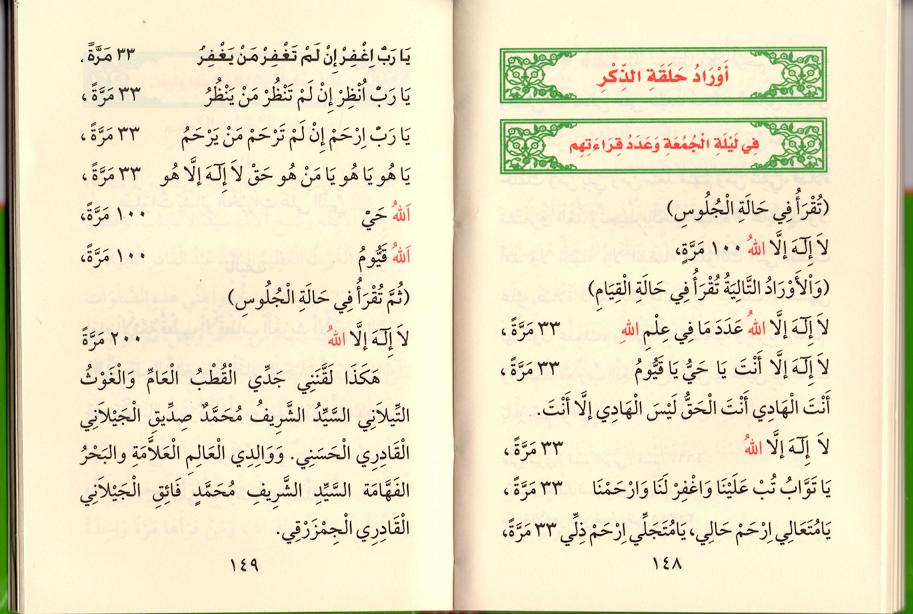
Mustafa Styer - Arabic
Songs of Presence : Qasidas of the Shadhiliya
Songs of Presence, Qasidas of the Shadhili Path : This outstanding limited print edition helps you master the Qasidas and elevate your choral singing. It is comprehensive, functional, durable and pleasing to the soul. With more than 100 Qasidas, 'Songs of Presence' has almost every qasida you can expect to be sung in a Sufi (or Mawlid) gathering, especially those of the Shadhili Order. This includes Inna Fi al-Janna, Ayyuha al-Ashiq, Bushra Lana, Da'uni Unaji, Qad Kafani 'Ilm Rabbi, Ya Imam al-Rusl, Ishrab Sharab Ahl al-Safa and Da' Turq al-Ghayy.
It even contains Qasidat al-Burda, al-Muhammadiyya and Tala'a al-Badru 'Alayna.
Every Arabic letter has been fully vowelled following the Mughal Qur'an system. This system was designed by great scholars to make the correct pronunciation of every letter easy on non-Arabs. Thus Songs of Presence is as easy to read from for non-native Arabic speakers as it is for Arabs.
The Qasidas found within 'Songs of Presence' contain reflections of the spiritual states of their authors: saintly and profoundly learned sheikhs and gnostics. The majority focus on Allah, drawing close to Him and the stages which occur in that journey. The rest focus on the attributes and inward realities of the Prophet, may Allah bless him and give him peace.
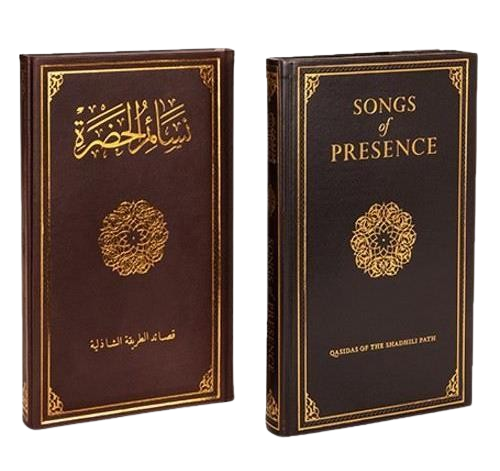
Arabic for All - Arabic
Al-Arabiyyah Bayna Yadayk 1/1 with MP3
Al-Arabiyyah Bayna Yadayk, Arabic At Your Hands (Students Level 1, Book 1) - With Computer CD - MP3 Format.
This series is designed for the non-Arab speaking, senior level student. With a collection of MP3 CD's it helps the student learn Arabic through listening and conversation along with reading and writing. The series stresses communication and also offers glimpses into the Arabic culture, both Islamic and national.
The first level consists of two parts (books), each of which includes 8 units (total of 16 units). Each unit consists of 9 lessons, constituting a total of 144 basic lessons in this level.
At its end, the first level includes a group of vocabularies with illustrated pictures. It also comprises lists for vocabularies used in each unit and another list for all vocabularies used in the level arranged alphabetically. It also contains listening texts along with an MP3 audio CD (8 hours) covering all texts and some of the exercises included.
At its end, the first level includes a group of vocabularies with illustrated pictures. It also comprises lists for vocabularies used in each unit and another list for all vocabularies used in the level arranged alphabetically. It also contains listening texts along with an MP3 audio CD (8 hours) covering all texts and some of the exercises included.
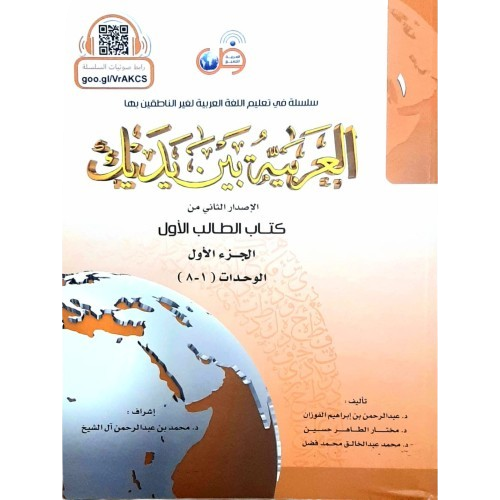
Deeb al-Khudrawi - Arabic
Dictionary of Islamic Terms : Arab/Engl.
A handy reference guide for times when one comes across an unfamiliar Arabic term. Helpful in the study of Qur'an and Hadith.
Well presented in two colour and friendly script. Click on images below for sample pages.
Compilers Preface :
There are many dictionaries concerning many fields of life, but we do not yet have an explanatory dictionary regarding Islamic Terms. So I have tried to fill that gap with this dictionary and hopefully give the readers a sufficient ground towards a better understanding of Islam. In essence I hope you readers will become enlightened.
As to the contents of this dictionary; it contains various aspects of Islam, such as Qur'anic words (illustrated by some verses from the Noble Qur'an), the Sunnah of the Beloved Prophet Muhammad, may Allah Bless him and Grant him peace, the worship, marriage, divorce, our heritage, the terms of Fiqh, the prohibited and unprohibited in Islam, the sources of legislation of Islam and many other important issues.---Deeb al-Khudrawi.
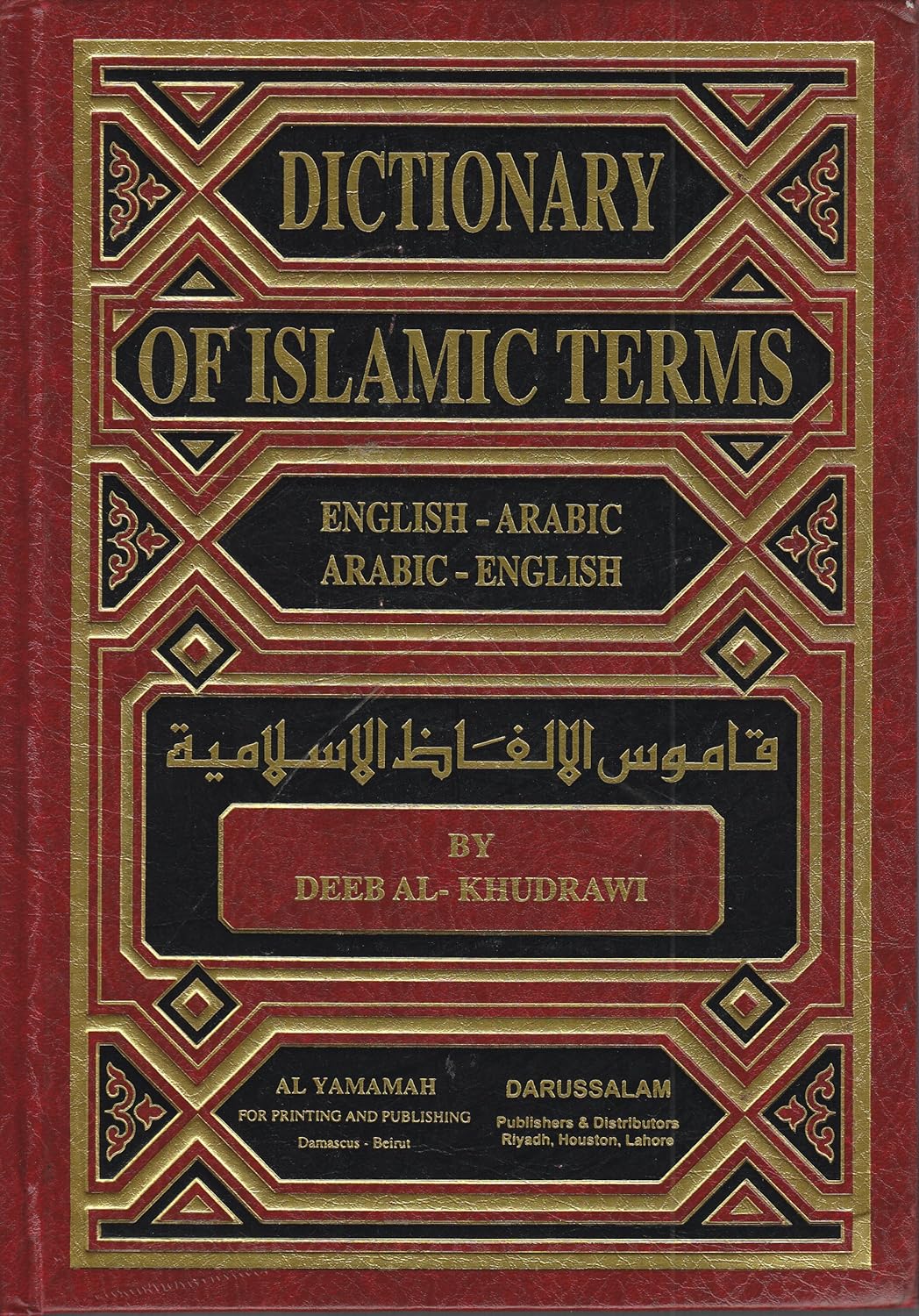
Dr. Sayyad ash-Sharif - Arabic
Mawlid al-Rasul al-A'zam : Arabic
Beautiful Mawlid book attributed to al-Ghawth al-A'zam Sayyadina Shaykh 'Abd al-Qadir al-Jilani, radi Allahu ta'ala anhu.
Contains the narative regarding the occasion and event of celebrating the blessed birth of the Beloved Prophet, salla Allahu ta'ala 'alayhi wa Sallam.
Contains various salawat for Mawlid, awrad and supplications.
---2 Colour Print on cream matt paper,
---Attributed to Ghawth al-Adham Shaykh 'Abd al-Qadir al-Jilani.
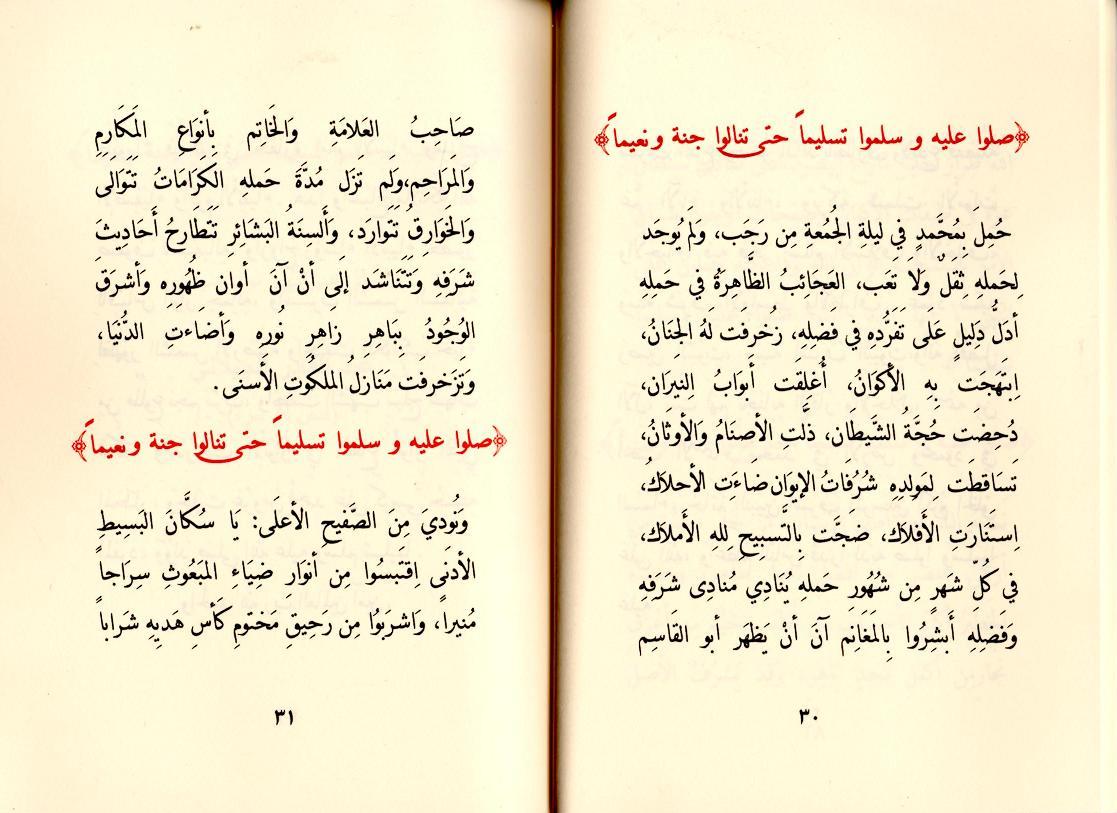
Urdu
Shanul Haq Haqee - Urdu
Advanced Urdu with CD
Synopsis : The Oxford English-Urdu Dictionary is one of the most comprehensive and authoritative English-Urdu dictionary available today.
This Little version is an abridged excellent essential reference work for anyone living and working in an English speaking environment. With thousands of example phrases, pronunciation guidance for every headword, and up-to-date coverage of English as it is used today, this is an essential reference work for anyone living and working in an Urdu-speaking environment, or studying Urdu at school or university.
---Good quality paper and print.
---Decent size font and lettering.
---Nice and clear presentation. See image below for sample page.
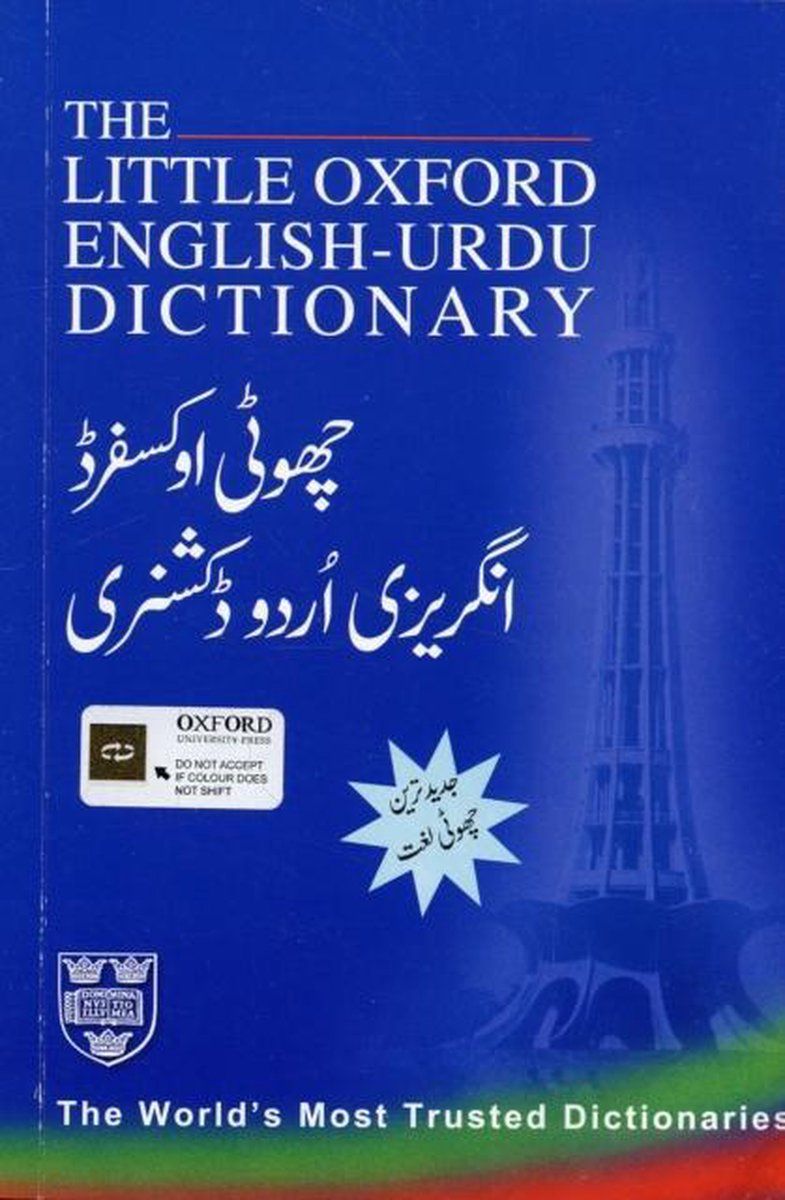
Zarina Khand - Urdu
Advanced Urdu with CD
This textbook covers the entire syllabus of GCE (AS & AL) level. It has been designed and laid out in line with the exact specification of SQA, AQA and GCE Urdu Edexcel Exams.
The opening chapters are for Urdu intermediate and Scottish Higher qualification whilst the remainder of the book addresses in detail the six units of the Edexcel Urdu A level examinations. It is printed on a high quality glossy paper in colour with a variety of illustrations to inspire interest and aid learning.
Unit 1 deals with the skills of listening and writing about situations which arise in everyday life. A selection of these have been recorded in the accompanying CD.
Unit 2 focuses on reading along with the development of writing skills. A selection of varied texts is provided together with exercises to test comprehension.
Units 3 and 4 develop a range of communication skills. Speaking skills are developed by providing the opportunities for the expression of opinions and discussion on a range of different topics in preparation for the oral exam.
Units 5 and 6 cover the major part of the A level curriculum.
Prescribed topics, texts and characters have been laid down in line with set texts as specified by the Edexcel GCE Urdu (8643) and (9643) syllabus.
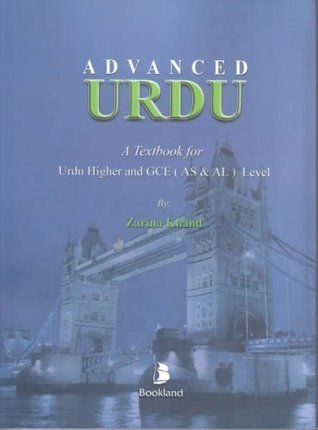
Allama Shaykh Fadl al-Haq al-Khayrabadi [d.1278h] - Urdu
Imtina an-Nazir : Urdu & Farsi
Imtina un-Nazeer was written by the author Allama Fazl e Haq, rahmatullahi ta'ala 'alayhi, in response to the extremist viewpoints of the controversial Isma'il Dehlavi and his student Molvi Haider Ali Tonkvi.
In excess of 200 ulama wrote against Isma'il Dehlawi's error-laden book Taqwiyat al-Iman which Allama Fazl e Haq, rahmatullahi ta'ala 'alayhi, refuted with his excellent work Tahqiq al Fatwa fi Ibtal al Taghwa. A student of Isma'il Dehlwi - Haider Ali Tonkvi also wrote some words in his defence, and as a result, this acclaimed book Imtina un-Nazeer was compiled.
The subject matter of this book is regarding the maqam (status) and Prophethood of Allah Almighty's Mahboob, Hudur Nabi al-Karim, salla Allahu ta'ala 'alayhi wa Sallam, - in that the Beloved Prophet, ?, is matchless and unique. This book silenced the Deobandi and Wahhabi groups.
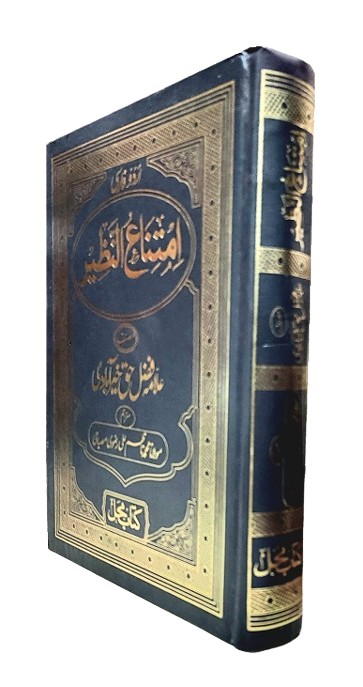
Imam Abu Nu'aym al-Asfahani - Urdu
Allah Walloon ki Baatein: [1] Urdu
Hadith, Sayings of the Blessed Companions:
This book embodies an extensive collection of 1,049 authentic sayings (ahadith) of the blessed Companions of God's Messenger, upon whom be peace, and some of their interactions with him, as well as among themselves in the first century of Islam.
This unique book is based on the famous work of the 10th century scholar al-Hãfiz Imam Abu Na'ïm al-As-fahãni (948-1038 C.E.), rahmatullahi 'alayhi, no longer in print in the original Arabic language, and is the most authentic reference on the traditions of the blessed Companions of God's Messenger, upon whom be peace, and its lessons will prove to be most rewarding.
The book depicts some of the rare traditions, words and deeds of these most pious human beings, and it reviews some of the most magnificent instances of their lives. These narrations will testify to their unparalleled devotion, and they will certainly refresh one's memory with unique lessons on spirituality, true love for one's maker, and for His Blessed Messenger Muhammad, upon whom be peace.
Hilyatul Awliya represents a drop in the ocean of knowledge the blessed Companions cherished, and their testimonies will surely help polish a tarnished heart, as well as they will beautify a pious one. In fact, although the legacy of our righteous predecessors (salaf sãlih) is unique and their devotion surpasses the common, yet, their wisdom, example, and teachings will surely fill a yearning heart with the love and grace of Allah.
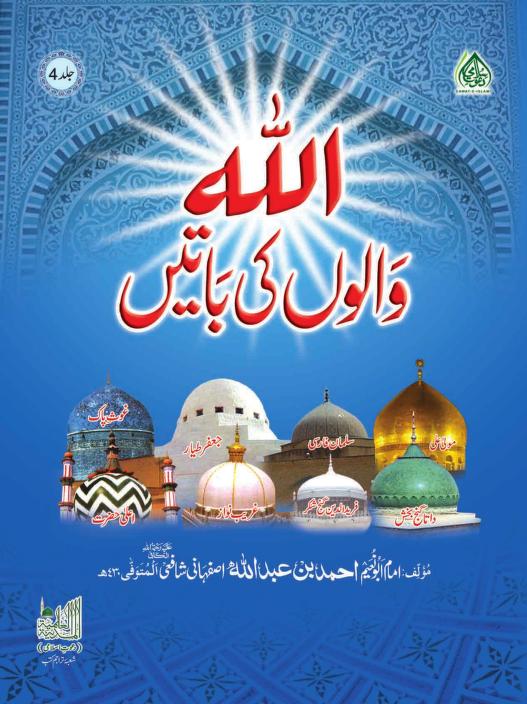
AlaHadrat Imam Ahmad Raza Khan - Urdu
Kanz ul Iman : [11A] Urdu Translation
This is Qur'an-e-Majeed with Urdu translation from Kanzul Iman. This edition is of decent quality print and binding and consists of 12 lines per page, with the urdu translation (Kanzul Iman) directly below the arabic.
Kanz ul-Imaan is the famous 'contemporary-classical' urdu Qur'an translation by the Mujaddid 'Reviver' of the 20th Century, 'Ala'Hadrat' - Shah Imam Ahmad Raza Khan, Fadil al Barelwi, 'alayhi ar-Rahman w'al Ridwan. It is universally accepted and read in every continent and is simply the most superior translation in comparison with others.
----12 lines per page,
----Urdu translation directly below the Arabic,
----Arabic text on green background,
----Precedes with Asma al-Husna & ends with Asma al-Nabi.
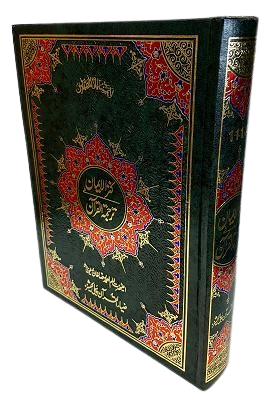
M. Ebrahim Muhammad - Urdu
Learning Urdu
The urdu language is one of many effective mediums used to attain the objectives of shar'ah and their completion, which is unique in itself. The significance of this language is more essential for students who are of sub-continent origin residing in western countries and have lost their connection with this language due to lack of concern.
It is in this regard the author has written this book which explains the urdu language in a very easy style while keeping in accordance with the principles of Urdu linguistics.
''Learning Urdu'' is a textbook for learning the basic concepts of the Urdu language. Ideally to be used in a class setting.
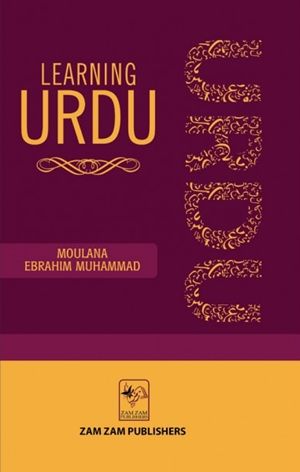
Malfuzat Khawaja Muin al-Din al-Chisht - Urdu
Daleel al-Arifin : Urdu
Daleel ul Arifeen : This work contains the malfoozat (the speeches/sayings) of Sultan al-Hind, Khawaja Gharib Nawab Sayyidina Shaykh Khawaja Muinuddin al-Chishti al-Sanjari, al-Ajmeri, rahmatullahi ta'ala 'alayhi. This collection was compiled by Khawaja Ajmeri's foremost student and devoted follower Khawaja Qutub al-Din ibn Kamal Bakhtiyar al-Kaki, ad-Dehlawi, rahmatullahi ta'ala 'alayhi.
It consists of twelve majalis or sessions. It is presumed, based on the evidence of these texts that eleven of these majalis were recorded by Khawaja Qutubuddin Bakhtiyar Khaki in Baghdad shareef. The twelfth majlis was recorded in Ajmer shareef.
The contents of Daleel al-Arifeen manifest deep spiritual and divine knowledge. They reveal guidance :
--- To tread the path of Allah, subhanahu wa ta'ala,
--- Portray the creed of the Friends of Allah,
--- The true disposition of humble and pious people,
--- The love for all of Allah Almighty's Creation,
--- The benefits of maintaining a clean heart, mind and life free from impurity, malice, enmity, worldly attractions and temptations, etc.
Such things cannot be revealed by ordinary people; these sermons come only from those pious and virtuous persons' who have achieved close friendship with Allah, subhanahu wa ta'ala, by totally submitting to Him.
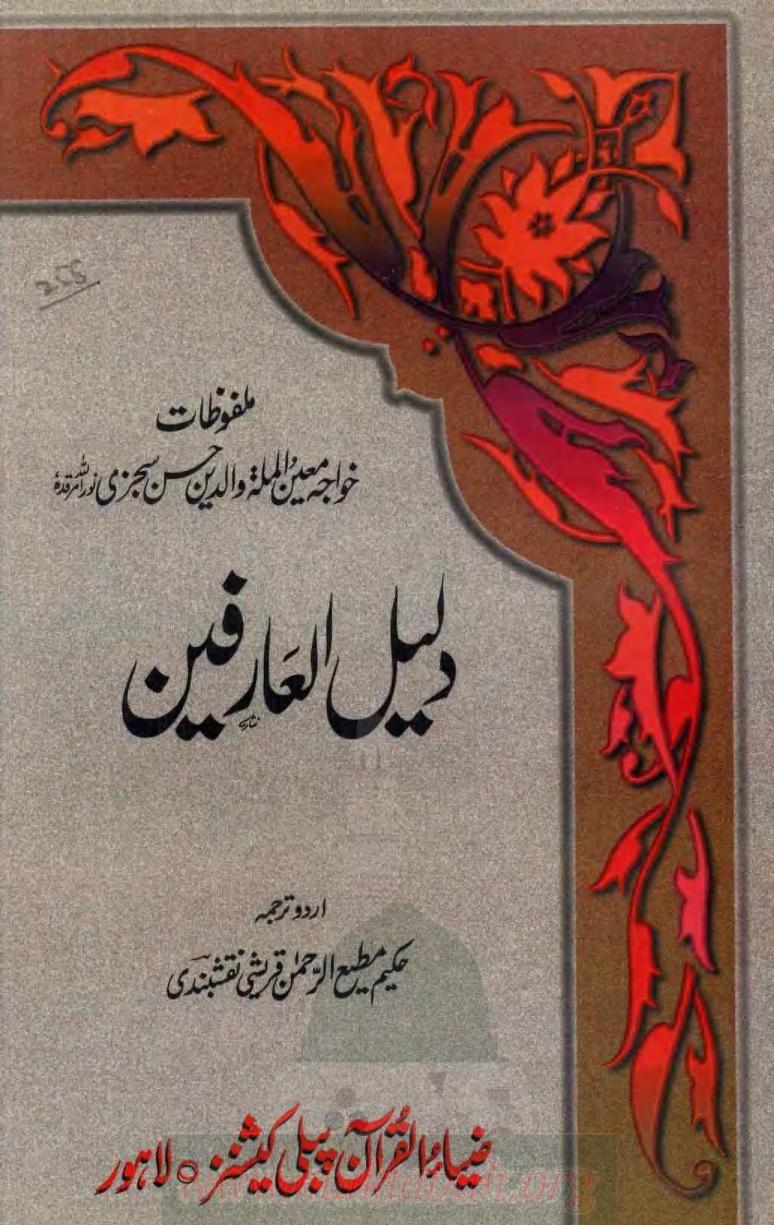
Shaykh Muhammad Sadiq al-Alawi - Urdu
Hubb as-Saliheen : Urdu
Hubb as-Saliheen Miftah al-Awliya is a beautifully presented book in Urdu on the subject of tasawwuf. This expansive work provides numerous detailed facts, evidences and narrations which expand upon the notion that true love for the Saliheen (Righteous) is the key to Wilayat (Sainthood).
Decent print by usual sub-continental standards.
Shaykh Muhammad Sadiq al-Alawi was born in the sub-continent in the 1940's and currently resides in Lancashire, United Kingdom, where he holds classes and regular halaqa dhikr sessions. He is the student of Shaykh Habib Ahmad Mashhur al-Haddad and is the author of a number of books.
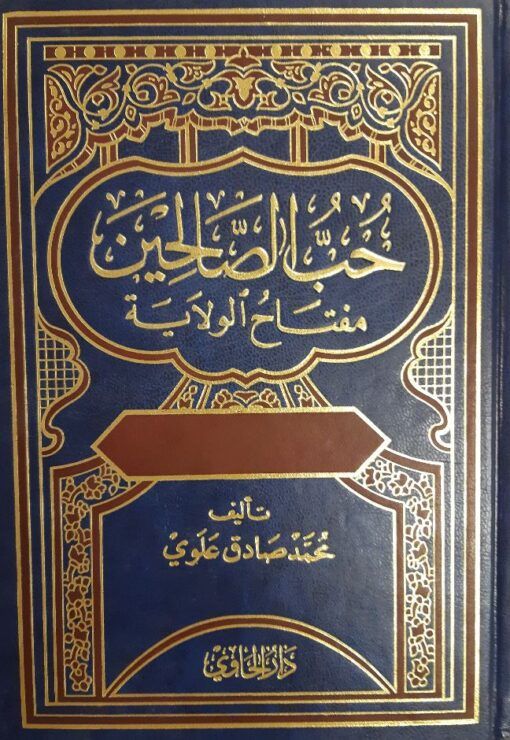
Sayyad Ali bin Usman al-Hijweri - Urdu
Kashful Mahjub : Urdu [Q]
Kashf al-Mahjub (The Revelation of the Mystery), by 'Data Ganj Bhaksh' - Shaykh Ali bin Uthman al-Hujwiri, may Allah be pleased with him, is a celebrated work on the subject of tasawwuf, Islamic mysticism, and has been held in high esteem by men of learning and students of Sufism. It has been translated into various languages over the course of time. The urdu translation presented here is by the respected scholar Mufti Ghulam Muin al-Din Na'imi.
Hadhrat Sayyid Ali bin Uthman al-Hujweri, may Allah be pleased with him, popularly known as Data Ganj Bakhsh (Bestower of Spiritual Treasures) belonged to a place called Hujwer in the town of Ghazna, Afghanistan. He lived during the 5th century A.H. (11th century C.E.) and was well versed in all the Islamic sciences such as Tafsir (exegesis) of the Qur'an, Hadith (Traditions of the Prophet), Fiqh (Muslim Law) and dogmatic theology (Ilmu Kalam). Al-Hujweri's, Radi Allahu anhu, spiritual lineage traces back to Hadhrat Junaid al-Baghdadi, Radi Allahu anhu, through the three intermediaries al-Husri, an-Nasrabadi, and Shibli, may Allah be pleased with them.
In the course of his spiritual journey to God, he journeyed physically to many countries, often alone and with hardship. These places included Turkestan, Transoxania, Iran, Iraq, and Syria where he met innumerable Sufi shaikhs, many of whom he has mentioned in this book. He went to Lahore in the later part of this life to spread Islam, converting large numbers of Hindus into Muslims. He passed away in Lahore in 469 A.H. (1077 Common Era) where his maqam currently stands, visited by people of all walks of life, from near and far.
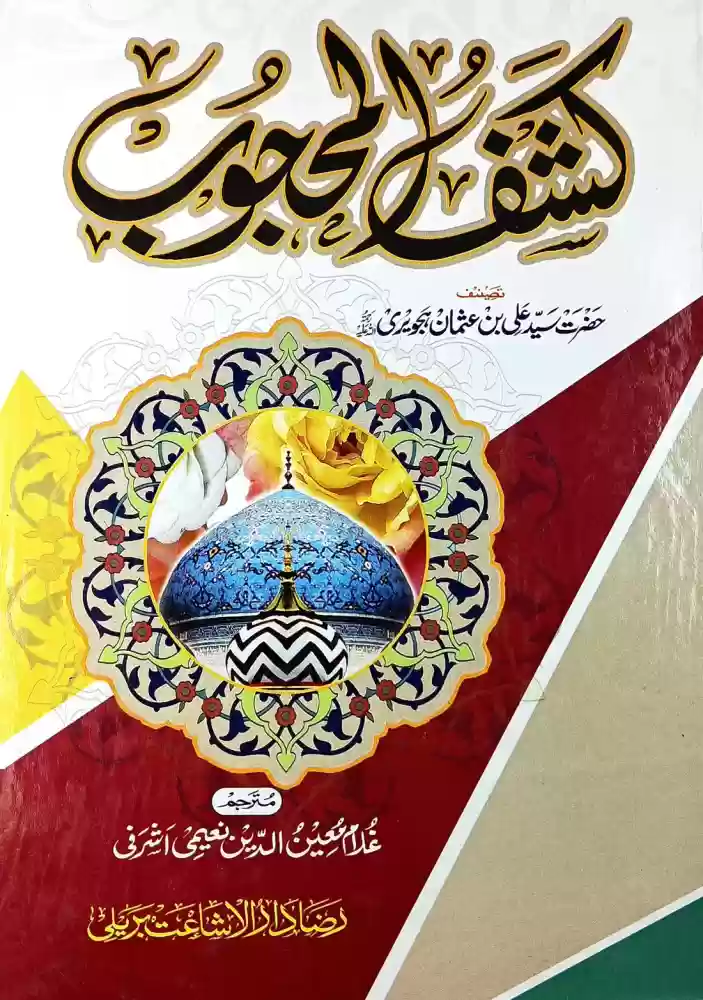
Persian (Farsi)
Arthur N. Wollaston - Persian
Advanced Urdu with CD
This is a rare edition of the once popular English to Persian Dictionary which was published in Lahore (2001) by Sang e Meel Publications. It is a copy of the work by the famed author and orientalist Sir Arthur Naylor Wollaston [1842-1922]. Arthur Wollaston had compiled his work around the year 1888.
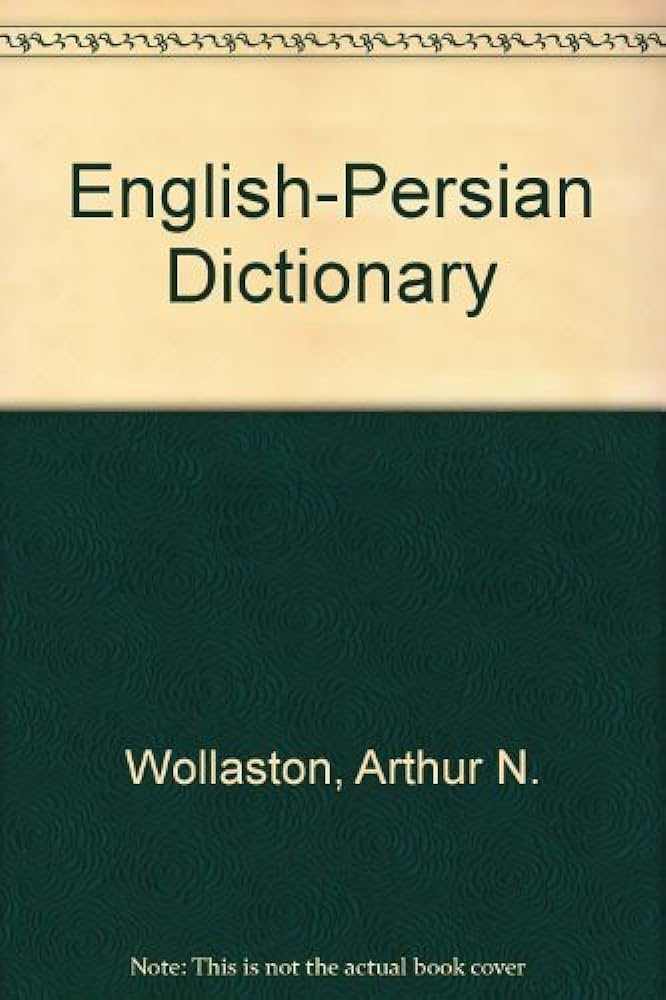
Imam Zein-Hud al-Azhari - Persian
Basic Farsi Grammar & Karima of Shaykh Sa'di
Basic Farsi Grammar and Karima of Shaykh Sa'di Shirazi - In this book, respectable and courteous Allamah Zein Hud bin Muhammad Akhlaq has compiled the fundamental principles of Farsi grammar and the poem Karima, both of which I have carefully read and both are an indispensible service to the Farsi language.
The respected author has put huge effort into the grammar section of this book and as a result has expanded on the classical Farsi grammar literature with illustrations and elaborations, which is very commendable. In light of my 55 years yeaching experience, I think this book is beneficial for the beginner student of the Farsi language. Therefore, it should be added into the Farsi language syllabus. ---Faqih al-Asr Mufti Allamah Fazle Subhan al-Qadiri.
After the Arabic language, Farsi is recognised as the language that hosts the most amount of Islamic literature, expecially concerning 'Ilm al-Akhlaq, Tasawwuf and 'Aqaid by prominent scholars of the Ahl al-Sunnah wa al-Jama'ah, such as Shaykh Shah Wali-Allah, Shaykh Abd al-Aziz, Shaykh Muhaqqiq 'Abd al-Haq Dehlawi, Mawlana Rumi, Shaykh Sa'di Shirazi and many more, may Allah be pleased with them all. Hence, due to its importance, this language is given a lot of regard and is very highly ranked among scholars.
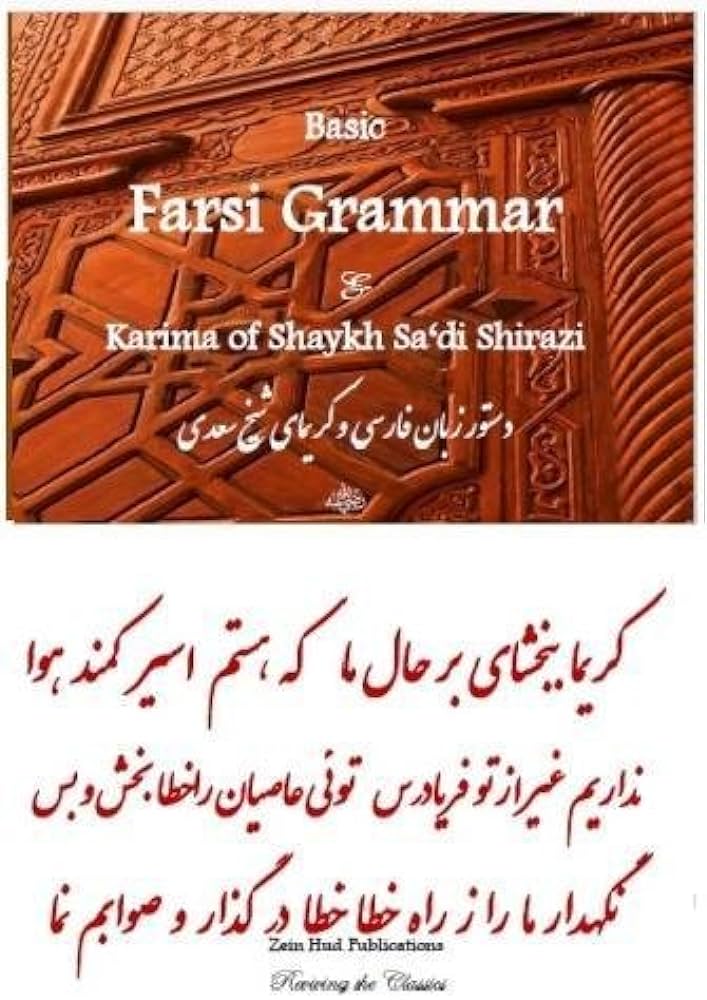
Shah WaliUllah Muhaddith al-Dehlawi - Persian
Qur'an : Farsi Translation
This is the Noble Qur'an with Persian (farsi) translation by arguably one of the greatest Ahl al-Sunnah scholars of his time, none other Al-Imam Al-Shaykh Shah Walli'Ullah Muhaddith ad-Dihlawi, rahmatullahi ta'ala 'alayhi.
Decent quality two colour clear print with ten lines per page. The farsi translation is directly below the Arabic text, line by line. See image below for sample page.
The Author :
He is Qutb al-Din Ahmad ibn 'Abd al-Rahim, popularly known as Shah Wali'Ullah, was born in 1114AH / 1703CE near Delhi (Dehlawi), a member of a distinguished intellectual and religious family. He received a highly structured education and spiritual instruction at the madrassah established by his father, Shah 'Abd al-Rahim, at Delhi. As well as the Qur'an, he studied Arabic and Persian grammar and literature and the higher philosophical, theological, metaphysical, mystical and juridical texts. He graduated from the school when he was barely fifteen years old; in the same year, his father initiated him into the famous Naqshbandiya Sufi order.
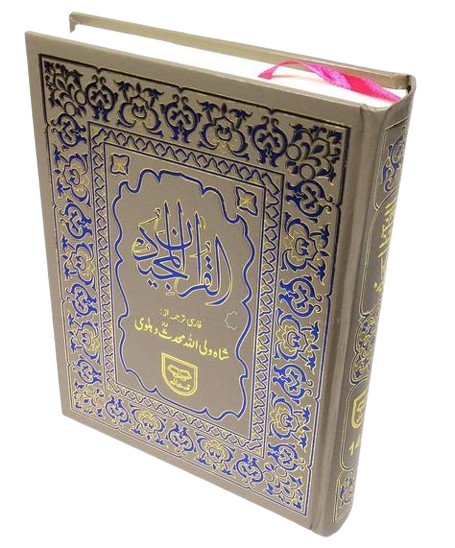
Shaykh 'Abd al-Haq Muhaddith al-Dehlawi - Persian
Madarij an Nabuwat : Farsi
Madarij un-Nabuwwah (Grades of Prophethood) - the famous biography (sira) of the Prophet Muhammad, Salla Allahu ta'ala 'alayhi wa Sallam, by the revered scholar, the master of Researchers' Shaykh al-Muhaqqiq, Shah 'Abd al-Haq Muhaddith ad-Dihlawi, alayhi ar-Rahman w'al-Ridwan.
---Volume 1 : 488 pages
---Volume 2 : 630 pages
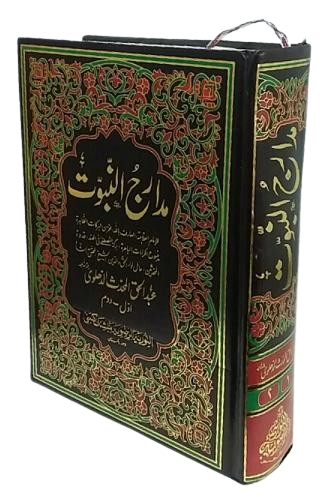
Shaykh Abdal Haq Muhaddith ad-Dehlawi - Persian
Akhbar ul Akhyar ma maktubat : Farsi
Akhbar al-Akhyar is the epic persian encyclopaedia on the biographies of the Friends of Allah; namely the Awliya, Sufiya and Mashaykh of the previous centuries from one of the greatest scholars of his time, Shaykh al-Muhaqqiq Shah Abd al-Haq Muhaddith ad-Dehlawi, 'alayhi ar-Rahman w'al-Ridwan.
This edition is in farsi language.
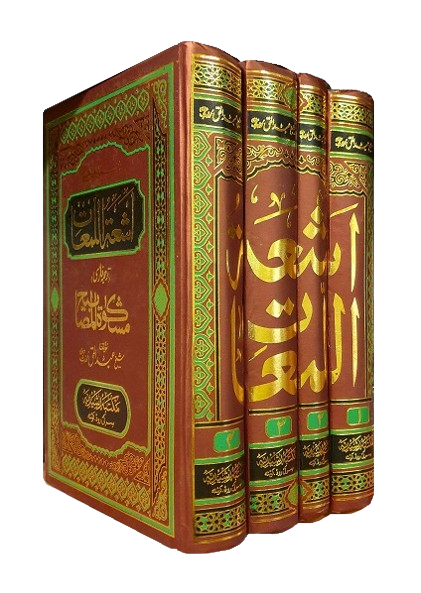
Children
Mawlana Jalal ad-Din Rumi - Children
Drops from an Ocean
'Drops from an Ocean' by Mawlana Jalaluddin Rumi, Radi Allahu ta'ala anhu,
Translated by Abdassamad Clarke.
This book is like little drops of water from the great ocean that is the Mathnawi. In some places it is more literally adapted and in others more faithfully to the essence of the tale. If it has value it is that it will lead the reader to plunge into that astonishing work.
The Mathnawi is known as ''the Qur'an in Persian'' not because it's author seeks to equate it with the Qur'an but because in it he so remarkably expounds the Qur'an. Although the Mathnawi is not a children's book, the stories have the directness and clarity which are a delight to the young; and which will prove to be a treasure-chest of instruction and a great source of wisdom for all.
Recommended for ages 12 and over.

Muhammad Hozien - Children
Al-Ghazali Illustrated Biography
Basic Farsi Grammar and Karima of Shaykh Sa'di Shirazi - In this book, respectable and courteous Allamah Zein Hud bin Muhammad Akhlaq has compiled the fundamental principles of Farsi grammar and the poem Karima, both of which I have carefully read and both are an indispensible service to the Farsi language.
The respected author has put huge effort into the grammar section of this book and as a result has expanded on the classical Farsi grammar literature with illustrations and elaborations, which is very commendable. In light of my 55 years yeaching experience, I think this book is beneficial for the beginner student of the Farsi language. Therefore, it should be added into the Farsi language syllabus. ---Faqih al-Asr Mufti Allamah Fazle Subhan al-Qadiri.
After the Arabic language, Farsi is recognised as the language that hosts the most amount of Islamic literature, expecially concerning 'Ilm al-Akhlaq, Tasawwuf and 'Aqaid by prominent scholars of the Ahl al-Sunnah wa al-Jama'ah, such as Shaykh Shah Wali-Allah, Shaykh Abd al-Aziz, Shaykh Muhaqqiq 'Abd al-Haq Dehlawi, Mawlana Rumi, Shaykh Sa'di Shirazi and many more, may Allah be pleased with them all. Hence, due to its importance, this language is given a lot of regard and is very highly ranked among scholars.
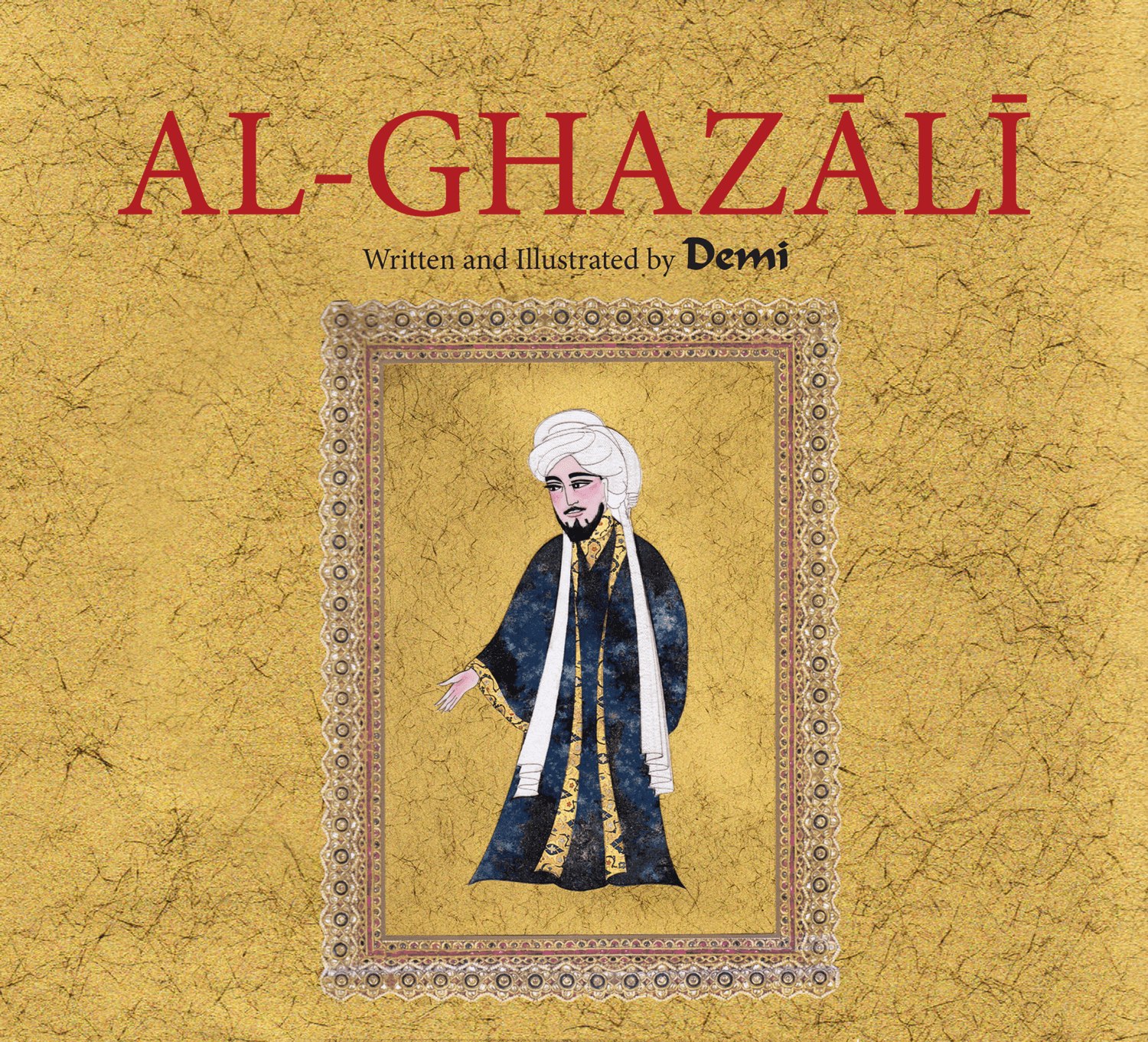
Halima Shala Ebrahim - Children
Adnan's Travels : New
Journey with young Adnan as he travels with his father to India, Turkey and Morocco discovering many colourful sights and sounds along the way. A delightful story told through letters home, and full of interesting people and places which will broaden many a child's mind.
Some of the sights mentioned :
*** Arrival in India,
*** Dhikr & Mehfil e Sama,
*** Chandni Chowk
*** Red Ford and Jamia Masjid, Delhi,
*** Shrine of Nizamuddin Awliya, may Allah be pleased with him,
*** Shalimar Gardens,
*** Agra; Taj Mahal,
*** Arrival in Turkey,
*** Shrine of the Sahaba, Hadrat Ayub al-Ansari, may Allah be pleased with him,
*** The Blue Mosque,
*** The Grand Bazaar,
*** Topkapi Museum,
*** Ferry across ther Bosphorus,
*** Turkish Bath,
*** Carpet Shop,
*** Konya : The Shrine of Mawlana Rume, may Allah be pleased with him,
*** Arrival in Morocco,
*** Jum'a at the King Hasan Mosque,
*** Meknes : Shrine of Shaykh ibn al-Habib, rahimaullah,
*** Fez : The Qarawiyyin Mosque,
*** Shrine of Moulay Idris, rahimaullah,
*** Food along the route to Marrakesh,
*** The shrine of Imam al-Jazuli, rahimaullah,
*** The tombs of the Sabat Rijal : 'The Seven Honoured Men,'
*** Eid Mubarak : Last day in Morroco before returning home.
Includes a Glossary of words (explanation of terms for children). Begins and Ends with full colour Map of the World. Beautiful hand painted colour images on every page.
Also includes recipes / ingredients for some of the foods and drinks that were consumed during the journey : these were: Mango Lassi, Stuffed Apricots, Orange Salad, Orange Blossom Biscuits.
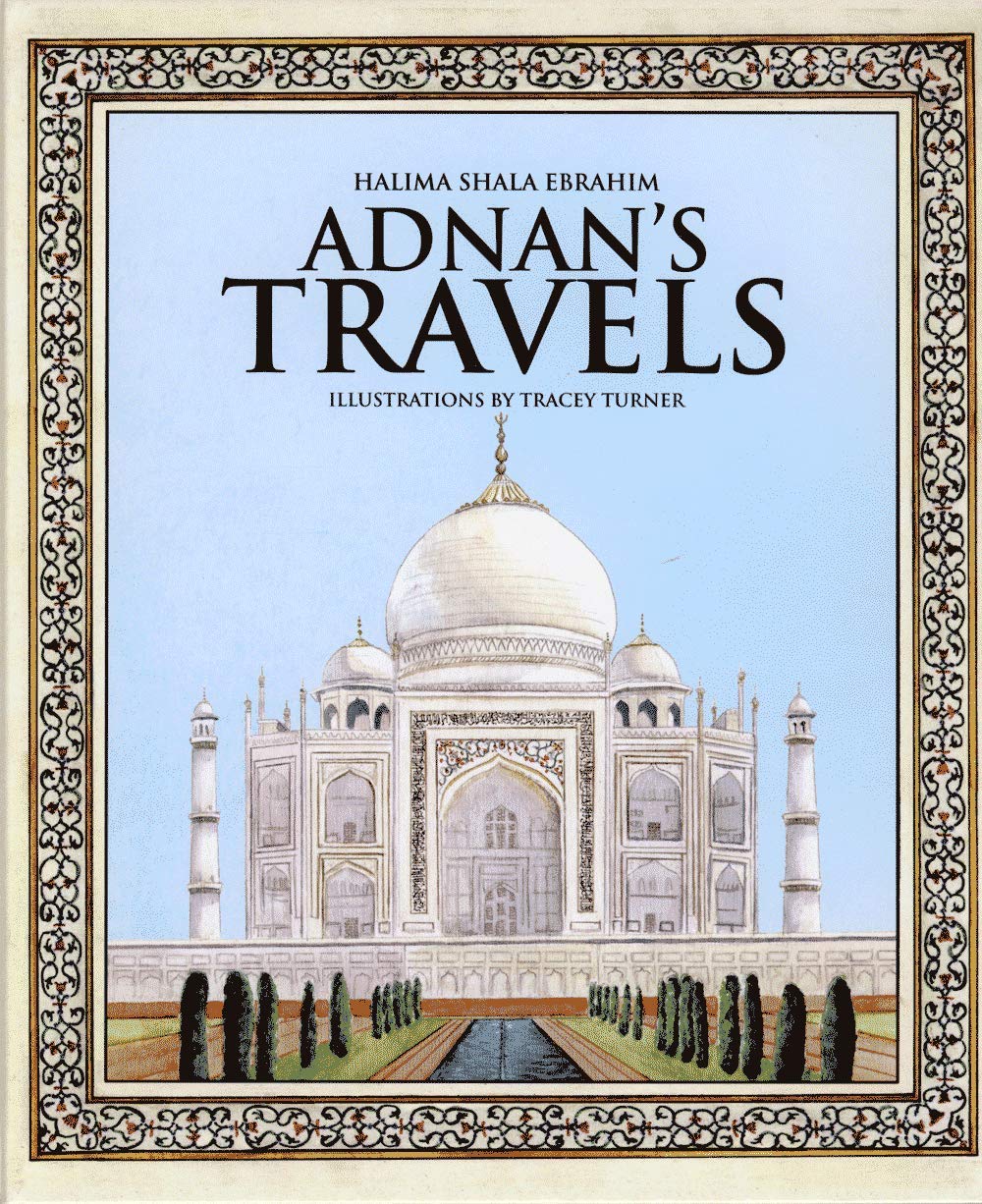
Haleema Khan - Children
The Story of the Cloak: New
Join Khadijah and her loving grandfather as they travel on a journey that takes them to the lands of Egypt, where they learn about the life of the poet, Imam Busiri, may Allah have mercy upon his soul, and the origins of the world famous poem, the Qasidah Burdah.
A beautifully illustrated book, that provides a wonderful insight for children into learning about the lives of the Ssaints of Islam and attaining the love and attachment for the Prophet of God, Sayyiduna Muhammad, peace and blessings be upon him.
For Ages : 8 to Adult

Saniyasnain Khan - Children
101 Seerah Stories and Dua
'101 Seerah Stories and Du'a' is a richly illustrated collection of 101 Great Stories told in simple language that children will easily understand and relate to. Each story comes with delightful illustrations and a beautiful prayer.
The book includes well known tales from the life of the Prophet Muhammad, peace and blessings upon him, - the Year of Elephant, the Birth and Childhood of the Prophet, the Revelation of the Qur'an, the first Muslims, opposition of the Quraysh, the spread of Islam and migration to Madinah to name a few. Its a unique experience the whole family will cherish and revisit again and again!
---101 Interesting Stories,
---Delightful Illustrations,
---101 Beautiful Prayers of the Quran and the Prophet, peace & blessings upon him,
---Hadith and references.
For ages 7 and above
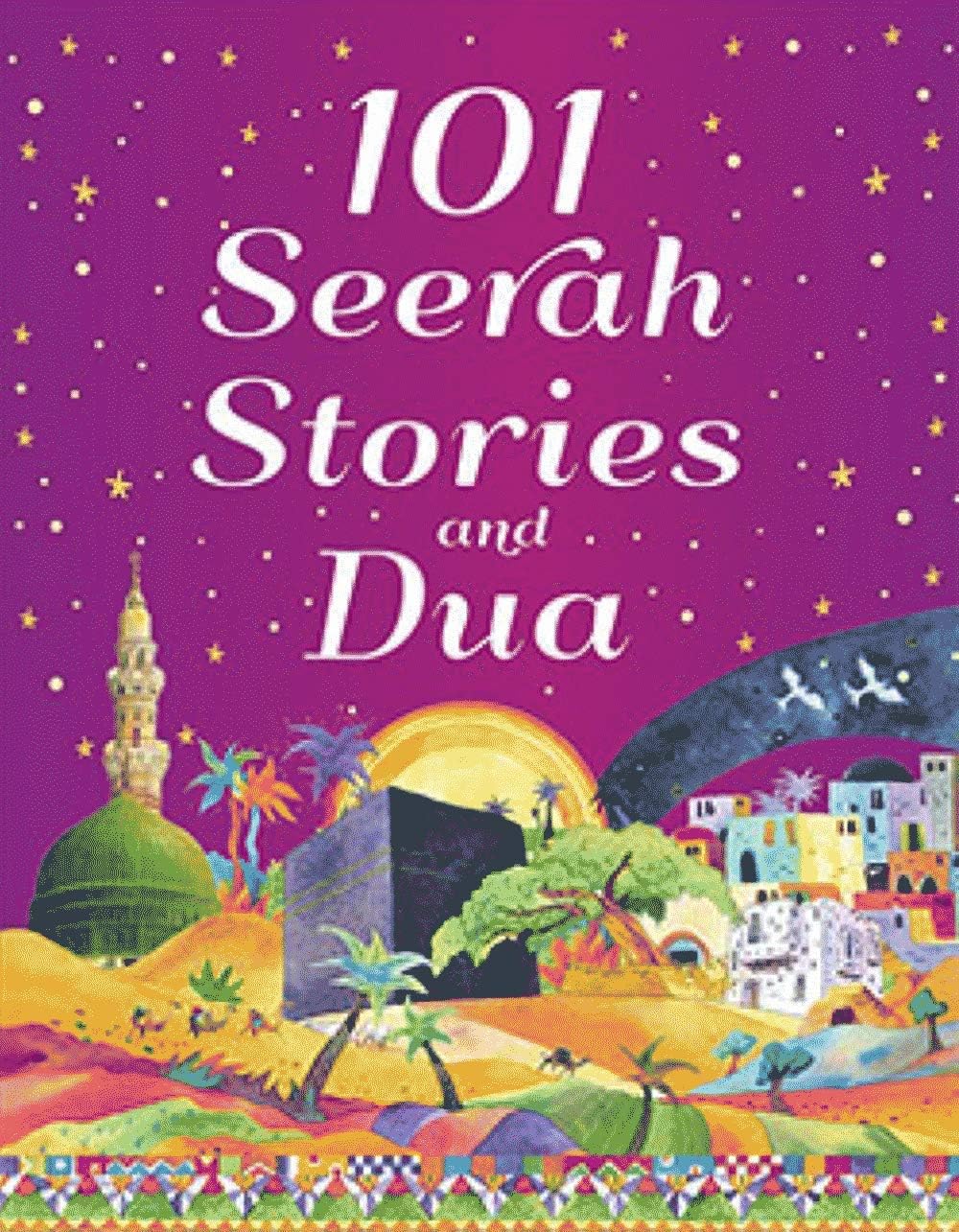
Noor Yusuf - Children
Adventures with the Awliya [1]
Introducing Beyond the Forest the first book in the Adventures with the Awliya series…This first book is the prequel to Through the Blue Gate. It narrates in a lively and interactive way, some of the accounts of the great figures of Islam, who were renowned in their time and afterwards for their towering piety, profound wisdom, compassionate humanity and miraculous blessings. They are the Awliyah Allah, the Friends of God, and are sometimes known as Muslim saints. This is a reference to the verses of the Qur'an;
'Take Heed! These are the Awliyah Allah - on them will be neither fear or grief -
those who believe and are reverently heedful - for them will be glad tidings in this world and the
hereafter...' as well as a number of well known hadith.
It is in these figures that one finds the fullest expression of the Islamic life-model - the Sunna of the Blessed Prophet Muhammad, may Allah bless him and grant him peace. The charcters depicted in the stories of this series, are drawn from differrent time periods and places across history. Although the stories are dramatised, their core is events that are recorded in reliable Islamic historical and biographical accounts.

Saniysanain Khan - Children
365 Prophet Muhammad Stories
365 Prophet Muhammad, may Allah bless him & grant him peace, Stories, is a richly illustrated collection of 365 great Seerah (life) stories which takes children on a fun-filled, day-by-day adventure throughout the Life and Times of the Prophet Muhammad, may Allah bless him and grant him peace.
Told in simple language and in an interesting manner, the stories come with delightful illustrations and provide a lively and chronological account of the Prophet, may Allah bless him and grant him peace, as a person, whose life and teachings are loved, cherished and respected by people all over the world. It is a unique experience which the whole family will cherish and revisit again and again!
For Age 7 and above!
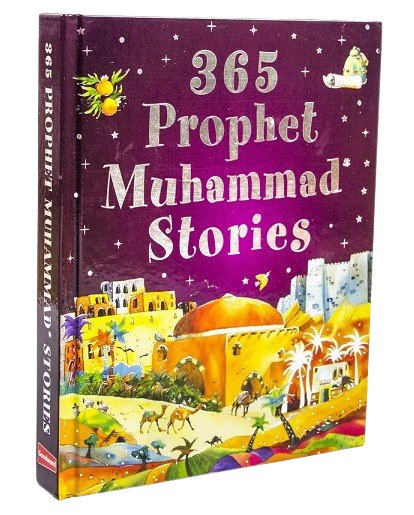
Moinuddin Khan - Children
Sleeping like the Prophet
Sleeping Like The Prophet, may Allah bless him and grant him peace, - 40 Prophetic Traditions In Rhyming English. That is 40 Sunnahs in rhyming poetry.
This book teaches the sunnah practices of the Prophet Muhammad, may Allah bless him and grant him peace, in terms of sleeping. It mentions over 40 etiquette's in sequence and in simple rhyming English.
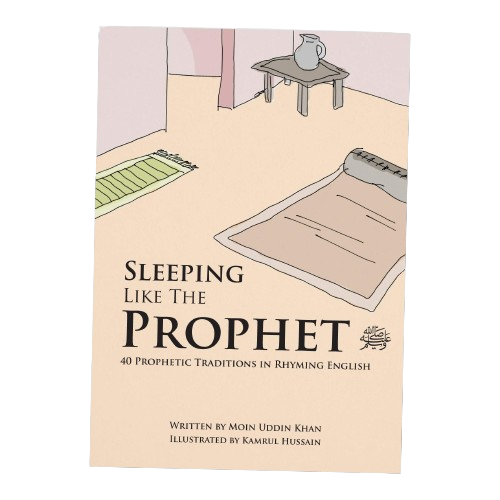
Matina Wali Muhammad - Children
A Mothers Rights
'' Through these eight short stories, taken from hadith and events in Muslim history, children are taught of the high status given to mothers in Islam.''
Includes stories about the mother of Hadrat Abu Bakr as-Siddiq, & the mother of Imam al-Ghazali, may Allah be pleased with them both.
Illustrated in colour.
Recommended for ages 7 and over.
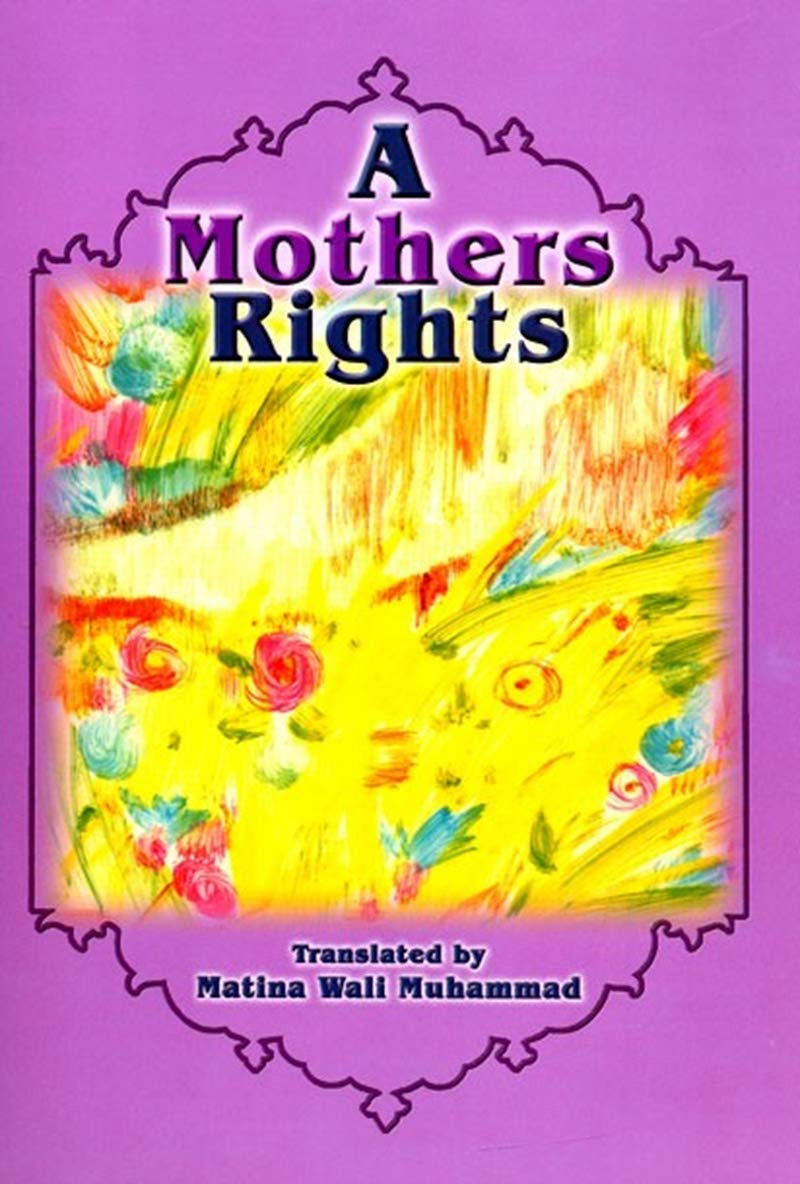
Mansur Ahmad - Children
21 Du'a for Children
Allah, subhanahu wa ta'ala, said He always listens to good prayers made by everybody. He listens to the prayers made by believers and sinners.
The best prayers are those that are taught by Allah, subhanahu wa ta'ala, in the Qur'an and those taught by our Beloved Prophet, may Allah bless him and grant him peace. In this book, 21 Du’a (supplications) from the Qur'an are included. Some of these du’a were first prayed by the Prophets, upon them be peace. Some du’a were made by the believers seeking guidance. Others were taught by Allah, subhanahu wa ta'ala, showing the believers what to ask for and how to ask.
---Full Colour,
---Glossy Pages (to maintain and preserve the book),
---Arabic, with Transliteration and Translation.
We can pray to Allah, subhanahu wa ta'ala, anytime using our own language. However, it is always better to pray using the exact words from the Qur'an. We must make it a daily practice to pray to Allah, subhanahu wa ta'ala, – after waking up, after salah, before going to bed, and at any other time.

Laki Isra - Children
Bilal Learns About Jannah
Bilal Learns About Jannah - Through the story of little Hasan comforting his friend Bilal after the passing of his grandfather, this book 'Bilal Learns About Jannah' encourages children to process the loss of a loved one through the concept of prayer and positivity.
You and your child are invited to explore the wonderful delights of Jannah through rhythm and rhyme. Activities are included to increase family time. Who would you like to meet in Jannah?
About the Author :
Sister Laki Isra worked as a Mental Health Professional for many years prior to becoming an author. The interest to want to write for women and children, and to produce books that were diverse and multicultural have always been at the forefront. The inspiration behind her books are in fact her children – the goal, to create a library of important muslim stories where heritage and culture are at the centre – and told in a way that is positive and up-lifting!
For Children 3 Years +
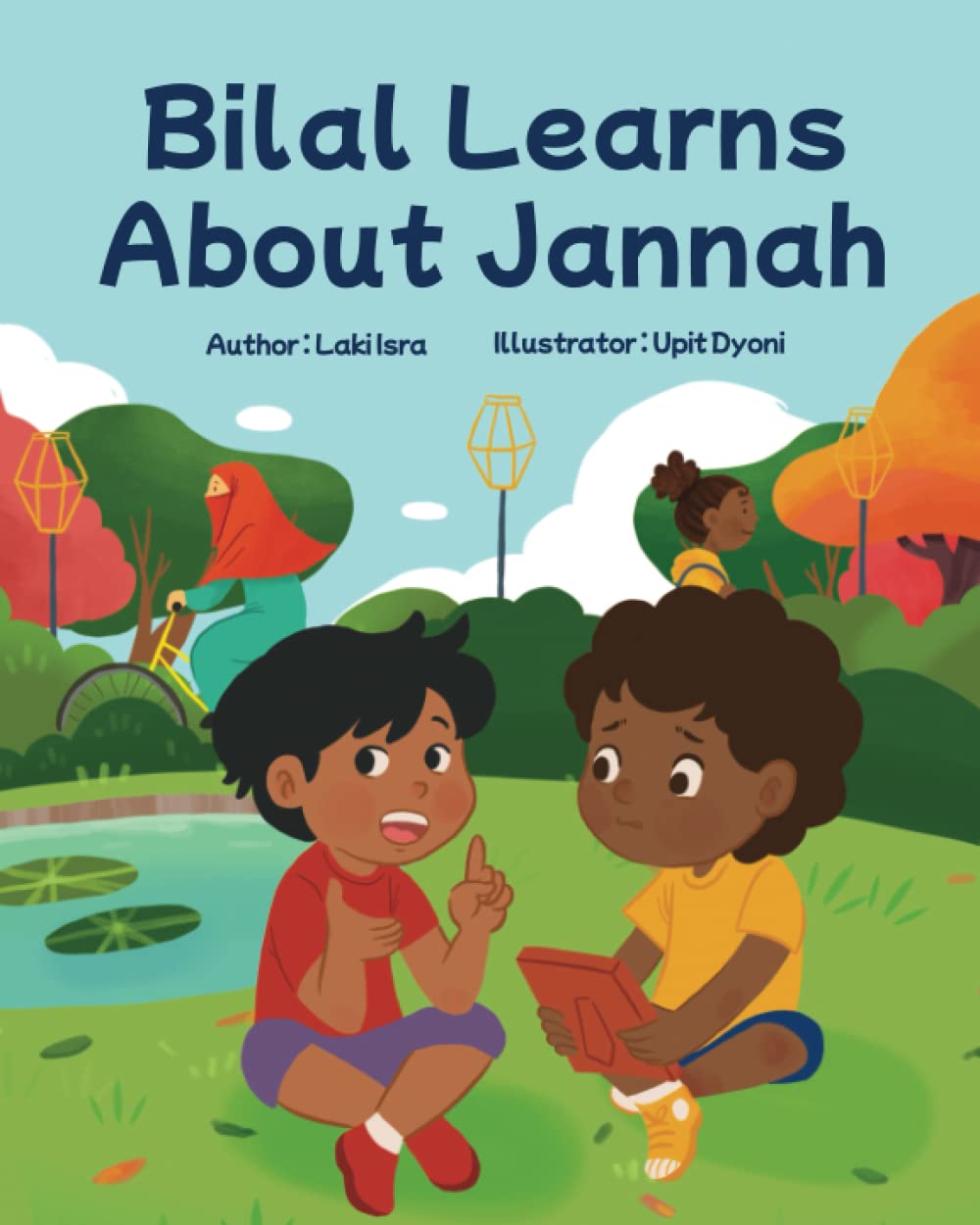
Sanisyasnain Khan - Children
How Ibrahim came to know Allah
This book is a beautifully illustrated and creatively written story about the Prophet Ibrahim, upon whom be peace. It will capture the interest of children both at home and in the classroom.
The Qur'an is full of exciting stories, adventures, teachings and prayers, which show Allah’s love for us and explain what He requires from us as believers in and sincere servants of our Creator.
'Qur'an Stories for Little Hearts' series is specially designed to provide an easy way to help your children understand more about the stories of the Qur'an by enjoying them and learning from them in a natural way. It’s a wonderful way to explain the greatest stories of the Qur'an to children and encourage them to explore the meaning and purpose of the word of Allah. A simple text and magnificent colour illustrations will captivate young, active minds.
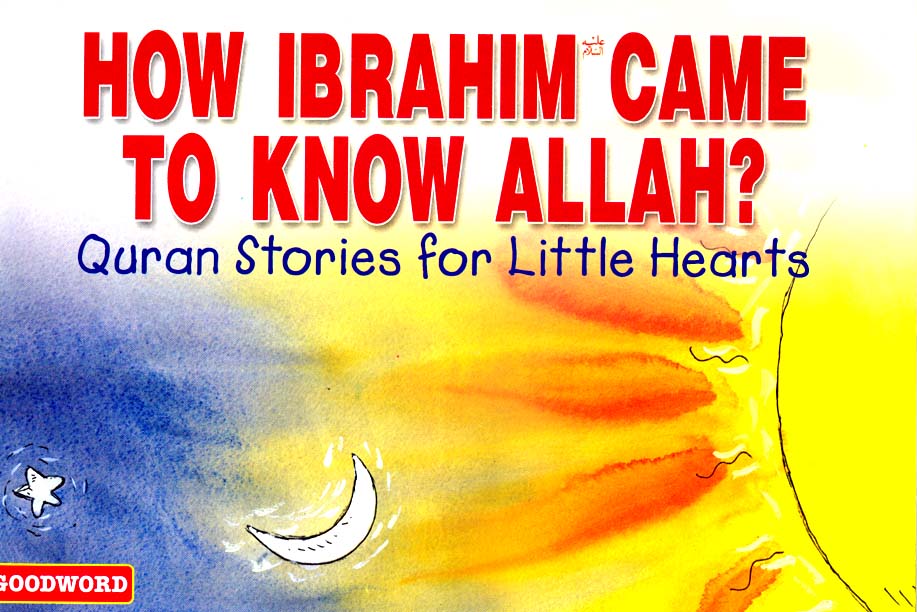
Sister Nafeesa Khan - Children
All About AKHLAAQ
All About Akhlaaq: A Fun Way to Learn & Practice Moral Values & Good Manners in Islam.
Often elders find it difficult to find a fun way to teach children akhlaaq, that is, moral values and good manners in Islam. All About Akhlaaq, being a fun book, will aid them in this.
***Designed for use at home and school, it covers a wide range of moral issues
and the occasions in daily life when good manners are essential,
***Colourful and story-filled, with an easy-to-use format and short skits,
***It will give a better understanding of each akhlaaq by encouraging children,
parents and teachers to engage in role playing.
Each theme, listed alphabetically, is expressed in simple language and has attractive illustrations on every page. What better way to learn akhlaaq than by acting it out! So, be active and practice akhlaaq!
Ages 7 and Above!


